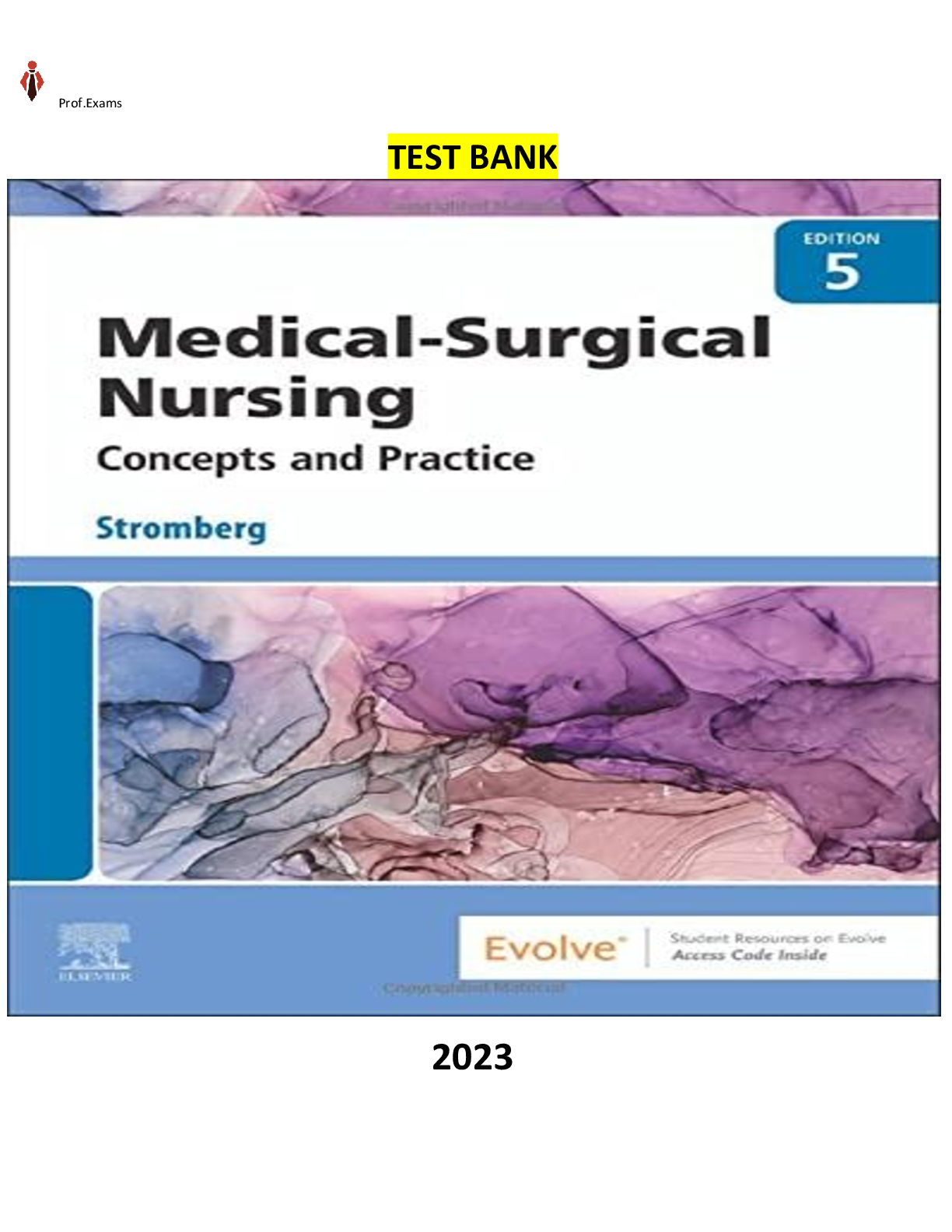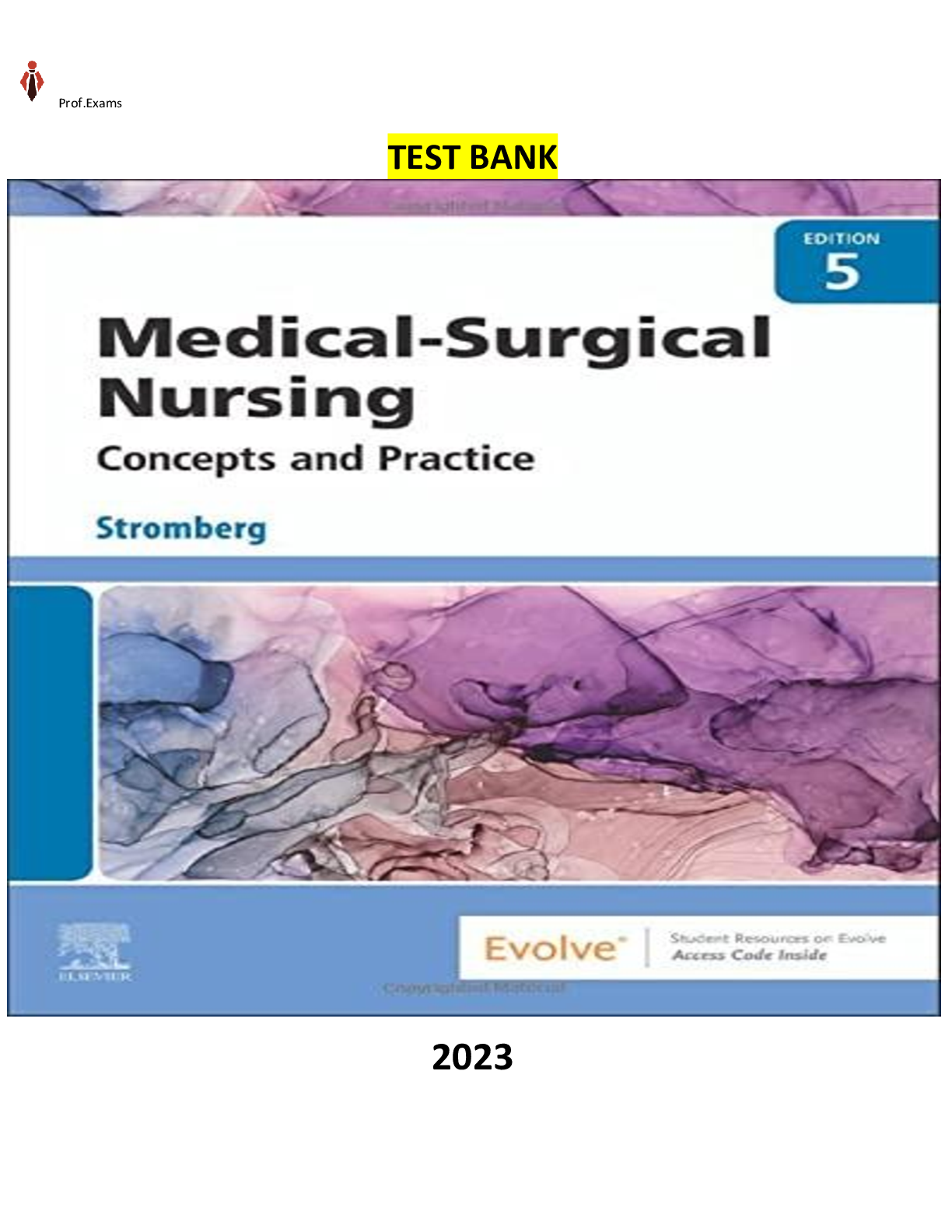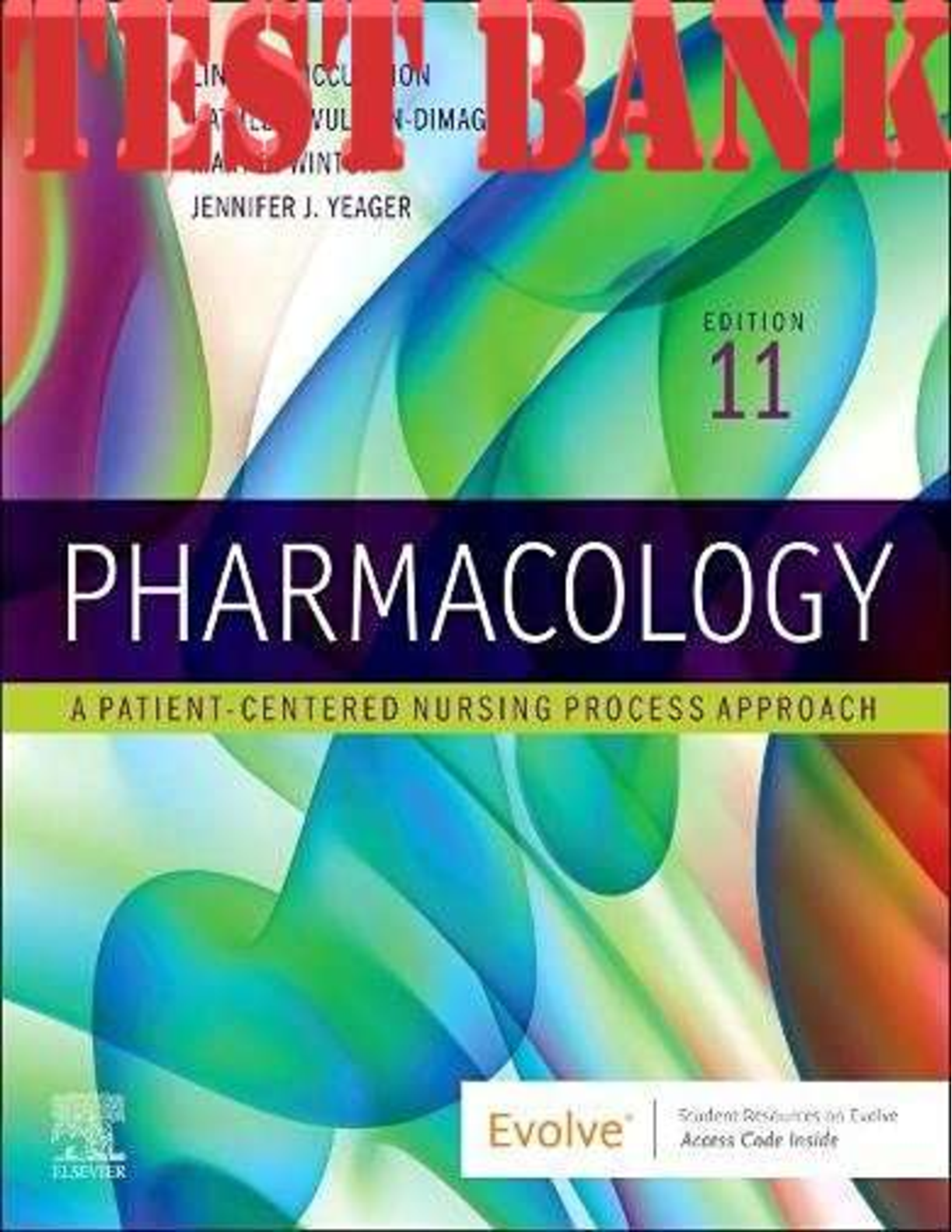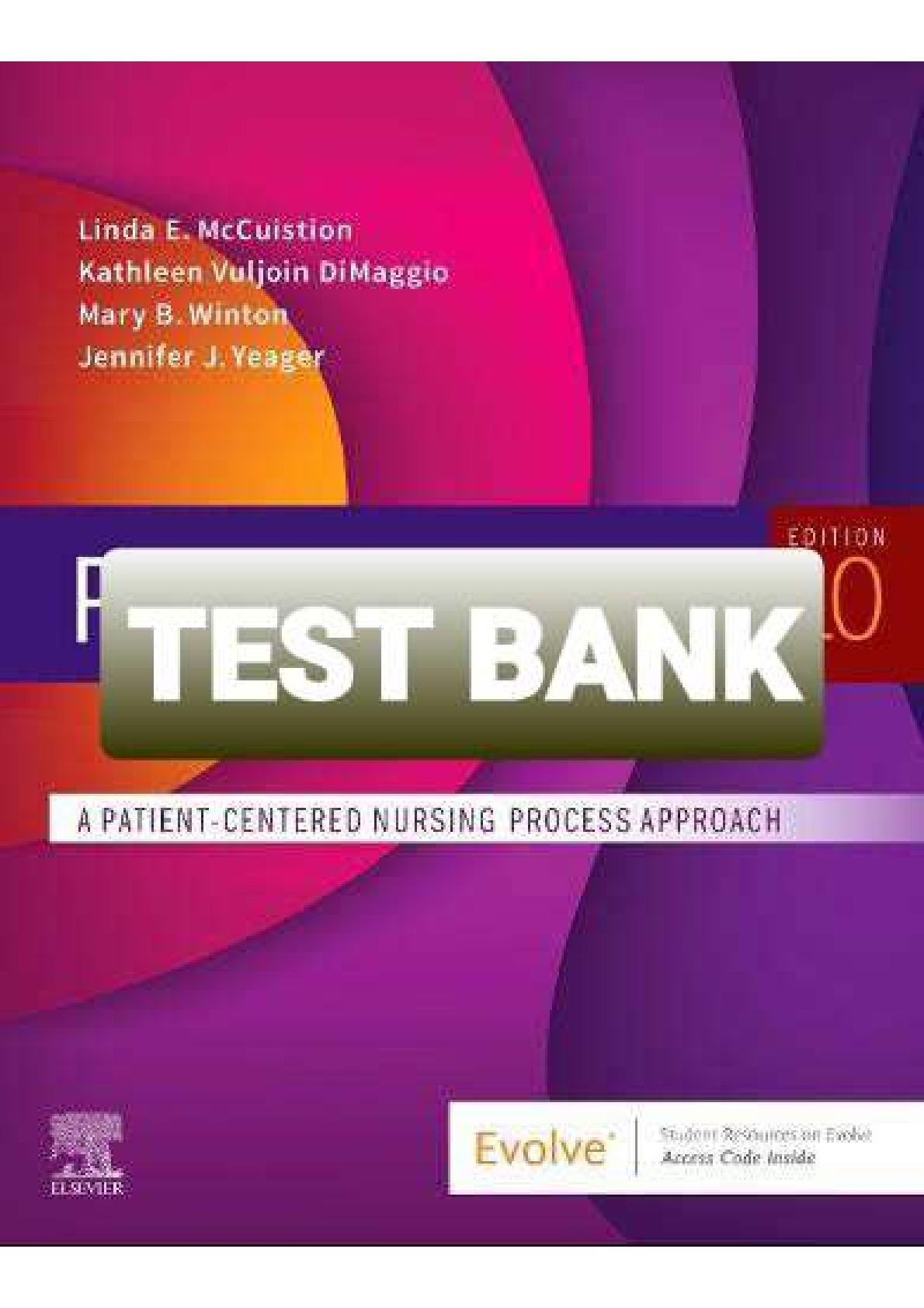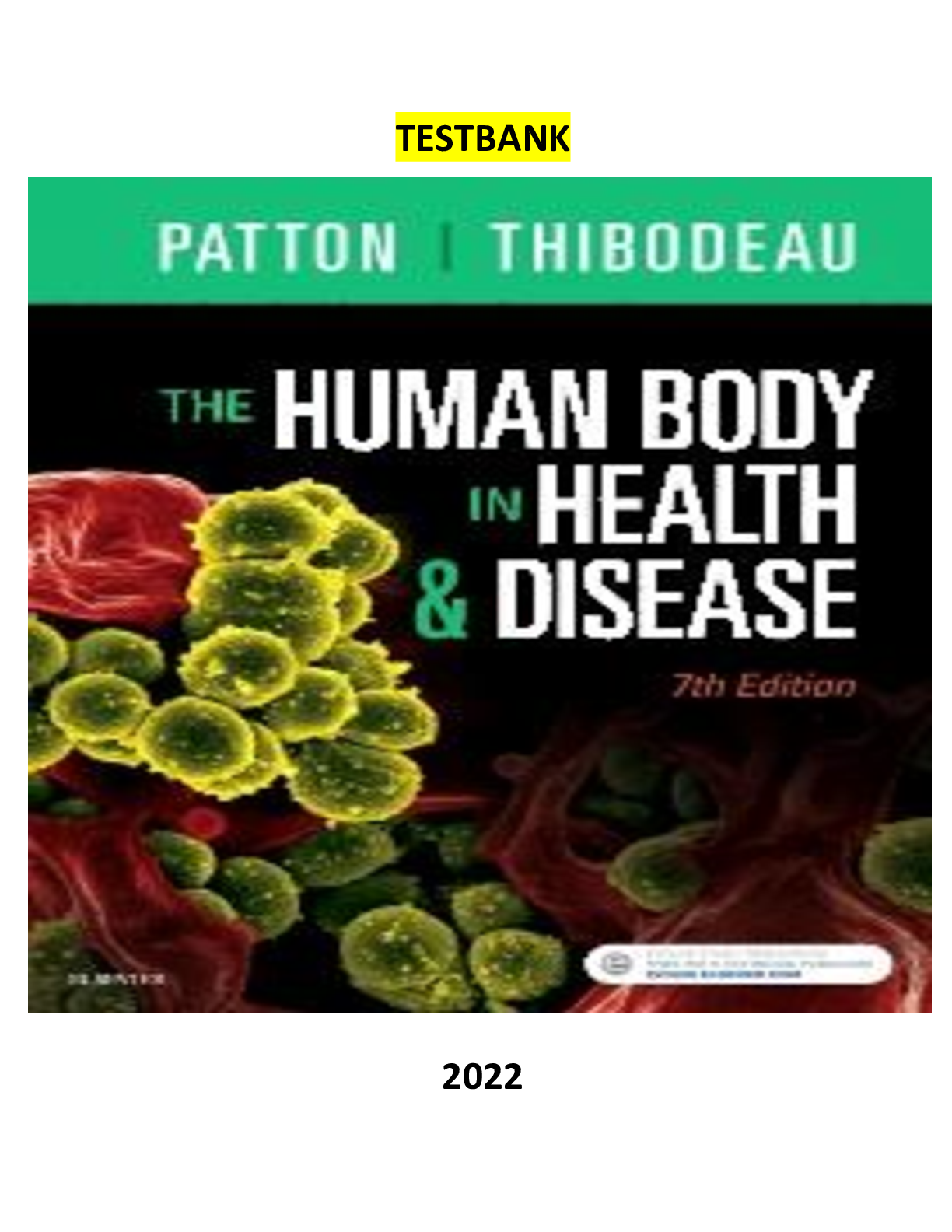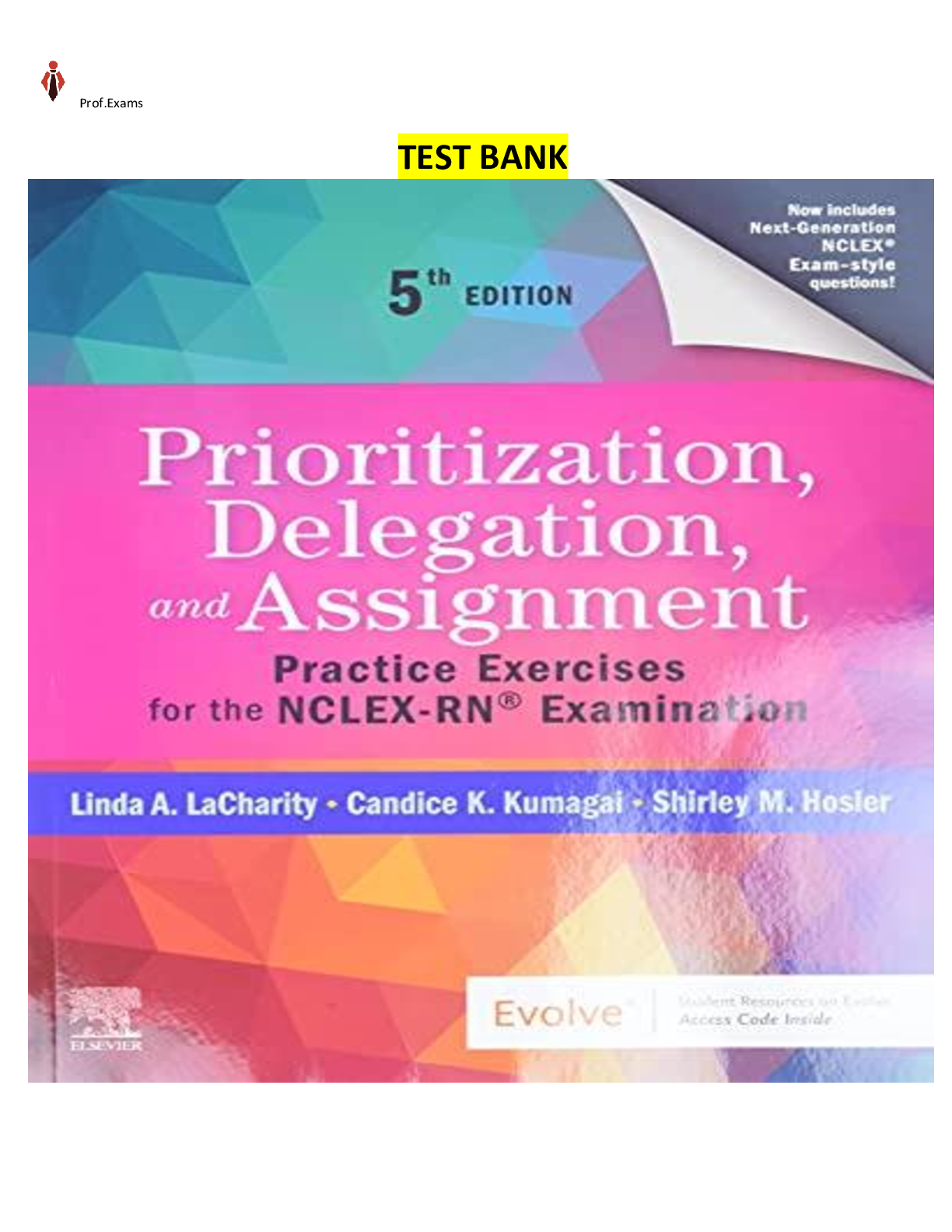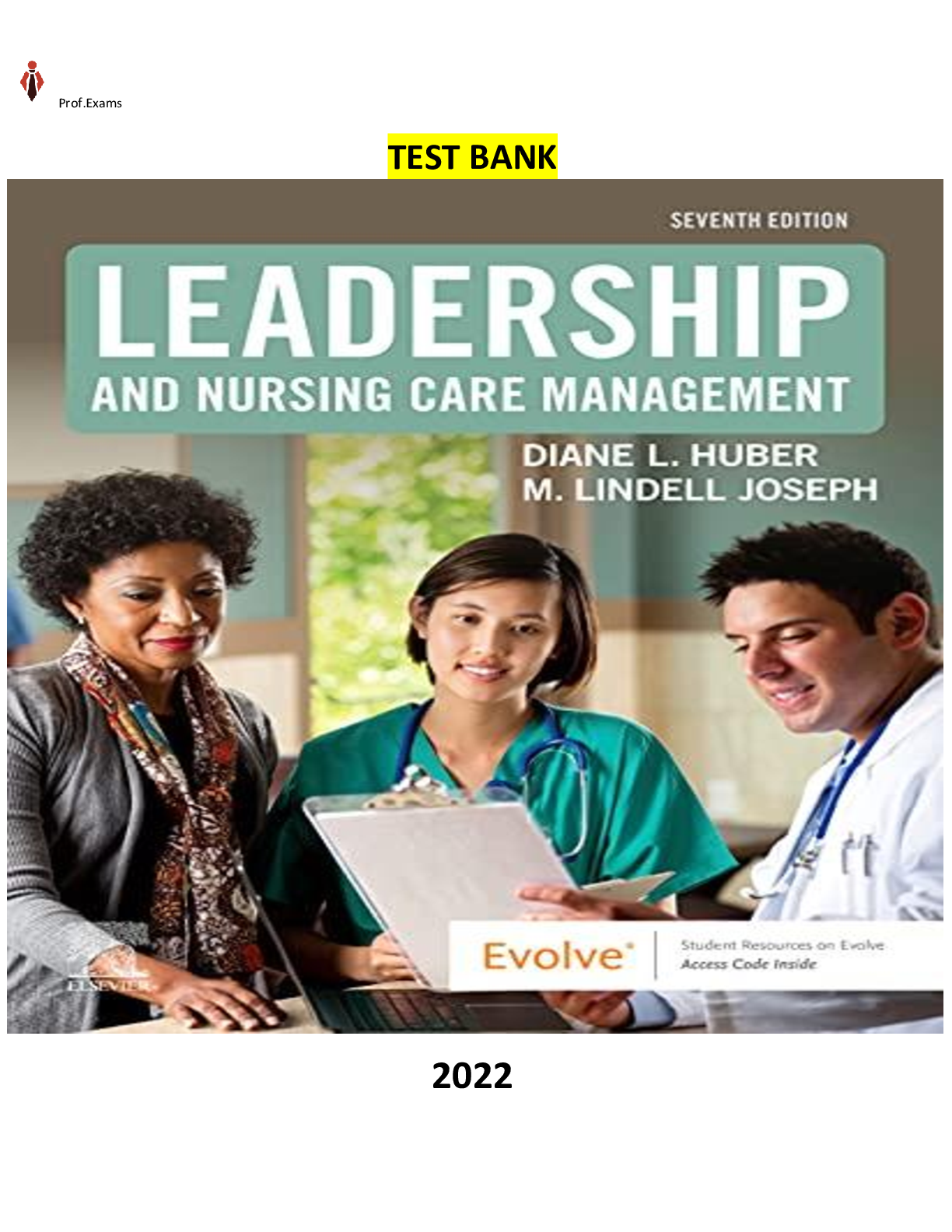Pharmacology > TEST BANK > COMPLETE - Elaborated Test Bank for Pharmacology-A Patient-Centered Nursing Process Approach 11Ed. b (All)
COMPLETE - Elaborated Test Bank for Pharmacology-A Patient-Centered Nursing Process Approach 11Ed. by Linda E. McCuistion , Kathleen Vuljoin DiMaggio, Mary B. Winton, Jennifer J. Yeager.ALL Chapters (1-55)included with 322 pages of questions.
Document Content and Description Below
COMPLETE - Elaborated Test Bank for Pharmacology-A Patient-Centered Nursing Process Approach 11Ed. by Linda E. McCuistion , Kathleen Vuljoin DiMaggio, Mary B. Winton, Jennifer J. Yeager.ALL Chapters (... 1-55)included with 322 pages of questions. COMPLETE - Elaborated Test Bank for Pharmacology-A Patient-Centered Nursing Process Approach 11Ed. by Linda E. McCuistion , Kathleen Vuljoin DiMaggio, Mary B. Winton, Jennifer J. Yeager.ALL Chapters (1-55)included with 322 pages of questions. TABLE OF CONTENTS Unit 1: Introduction to Pharmacology 1. The Nursing Process and Patient-Centered Care 2. Drug Development and Ethical Considerations 3. Pharmacokinetics and Pharmacodynamics 4. Pharmacogenetics 5. Complementary and Alternative Therapies 6. Pediatric Considerations 7. Geriatric Considerations 8. Drugs in Substance Use Disorder Unit 2: Pharmacotherapy and Drug Administration 9. Safety and Quality 10. Drug Administration 11. Drug Calculations Unit 3: Maintenance of Homeostasis 12. Fluid Volume and Electrolytes 13. Vitamin and Mineral Replacement 14. Nutritional Support Unit 4: Autonomic Nervous System Drugs 15. Adrenergic Agonists and Antagonists 16. Cholinergic Agonists and Antagonists Unit 5: Central and Peripheral Nervous System Drugs 17. Stimulants 18. Depressants 19. Antiseizure Drugs 20. Drugs for Parkinsonism and Alzheimer’s Disease 21. Drugs for Neuromuscular Disorders and Muscle Spasms Unit 6: Mental and Behavioral Health Drugs 22. Antipsychotics and Anxiolytics 23. Antidepressants and Mood Stabilizers Unit 7: Pain and Inflammation Management Drugs 24. Antiinflammatories 25. Analgesics Unit 8: Antimicrobial Drugs 26. Antibacterials 27. Antituberculars, Antifungals, and Antivirals 28. Antimalarials, Anthelmintics, and Peptides Unit 9: Immunologic Drugs 29. HIV- and AIDS-Related Drugs 30. Transplant Drugs 31. Vaccines Unit 10: Antineoplastics and Biologic Response Modifiers 32. Anticancer Drugs 33. Targeted Therapies to Treat Cancer 34. Biologic Response Modifiers Unit 11: Respiratory Drugs 35. Upper Respiratory Disorders 36. Lower Respiratory Disorders Unit 12: Cardiovascular Drugs 37. Cardiac Glycosides, Antianginals, and Antidysrhythmics 38. Diuretics 39. Antihypertensives 40. Anticoagulants, Antiplatelets, and Thrombolytics 41. Antihyperlipidemics and Drugs to Improve Peripheral Blood Flow Unit 13: Gastrointestinal Drugs 42. Gastrointestinal Tract Disorders 43. Antiulcer Drugs Unit 14: Eye, Ear, and Skin Drugs 44. Eye and Ear Disorders 45. Dermatologic Disorders Unit 15: Endocrine Drugs 46. Pituitary, Thyroid, Parathyroid, and Adrenal Disorders 47. Antidiabetics Unit 16: Renal and Urologic Drugs 48. Urinary Disorders Unit 17: Reproductive and Gender-Related Drugs 49. Pregnancy and Preterm Labor 50. Labor, Delivery, and Postpartum 51. Neonatal and Newborn 52. Reproductive Health 53. Men’s Health and Reproductive Disorders 54. Sexually Transmitted Infections Unit 18: Sexually Transmitted Infections 55. Adult and Pediatric Emergency Drugs 1. The nursing process is a five-step decision-making approach that includes all of the following steps, EXCEPT: a. Assessment b. Patient problem c. Planning d. Right Drug ANS: D The nursing process is a five-step decision-making approach that includes: 1) assessment, 2) patient problem, 3) planning, 4) implementation, and 5) evaluation. “Right drug” is one of the “Six Rights” of medication administration. DIF: Cognitive Level: Understanding (Comprehension) TOP: Nursing Process: Planning MSC: NCLEX: Management of Care 2. The nurse is using data collected to set goals or expected outcomes and interventions that address the patient’s problems. Which step of the nursing process is the nurse applying? a. Assessment b. Patient problem c. Planning N d. Evaluation ANS: C During the planning phase, the nurse uses the data collected to set goals or expected outcomes and interventions which address the patient’s problems. The data was collected during the “Assessment” and “Patient problem” steps. During the “Evaluation” phase the nurse would determine whether the goals and objectives set during the planning phase were met. DIF: Cognitive Level: Understanding (Comprehension) TOP: Nursing Process: Nursing Intervention MSC: NCLEX: Management of Care 3. A 5-year-old child with type 1 diabetes mellitus has had repeated hospitalizations for episodes of hyperglycemia. The parents tell the nurse that they can’t keep track of everything that has to be done to care for their child. The nurse reviews medications, diet, and symptom management with the parents and draws up a daily checklist for the family to use. These activities are completed in which step of the nursing process? a. Assessment b. Planning c. Implementation d. Evaluation ANS: C The implementation phase is the part of the nursing process in which the nurse provides education, drug administration, patient care, and other interventions necessary to assist the patient in accomplishing established medication goals. DIF: Cognitive Level: Understanding (Comprehension) TOP: Nursing Process: Nursing Intervention MSC: NCLEX: Management of Care 4. The nurse is preparing to administer a medication and reviews the patient’s chart for drug allergies, serum creatinine, and blood urea nitrogen (BUN) levels. The nurse’s actions are reflective of which phase of the nursing process? a. Assessment b. Evaluation c. Implementation d. Planning ANS: A Assessment involves gathering information about the patient and the drug, including any previous use of the drug. DIF: Cognitive Level: Understanding (Comprehension) TOP: Nursing Process: Assessment MSC: NCLEX: Management of Care 5. Which assessment is categorized as objective data? a. A list of herbal supplements regularly used b. Lab values associated with the drugs the patient is taking c. The ages and relationship to the patient of all household members d. Usual dietary patterns and fNood intake ANS: B Objective data are measured and detected by another person and would include lab values. The other examples are subjective data. DIF: Cognitive Level: Understanding (Comprehension) TOP: Nursing Process: Assessment MSC: NCLEX: Management of Care 6. The nurse reviews a patient’s database and learns that the patient lives alone, is forgetful, and does not have an established routine. The patient will be sent home with three new medications to be taken at different times of the day. The nurse develops a daily medication chart and enlists a family member to put the patient’s pills in a pill organizer. This is an example of which phase of the nursing process? a. Assessment b. Evaluation c. Implementation d. Planning ANS: C The implementation phase involves education and patient care in order to assist the patient to accomplish the goals of treatment. DIF: Cognitive Level: Applying (Application) TOP: Nursing Process: Nursing Intervention MSC: NCLEX: Management of Care 7. A patient who is hospitalized for chronic obstructive pulmonary disease (COPD) wants to go home. The nurse and the patient discuss the patient’s situation and decide that the patient may go home when able to perform self-care without dyspnea and hypoxia. This is an example of which phase of the nursing process? a. Assessment b. Evaluation c. Implementation d. Planning ANS: D Planning involves goal setting, which, for this patient, means being able to perform self-care activities without dyspnea and hypoxia. DIF: Cognitive Level: Understanding (Comprehension) TOP: Nursing Process: Planning MSC: NCLEX: Management of Care 8. A patient will be sent home with a metered-dose inhaler, and the nurse is providing teaching. Which is a correctly written goal for this process? a. The nurse will demonstrate the correct use of a metered-dose inhaler to the patient. b. The nurse will teach the patient how to administer medication with a metered-dose inhaler. c. The patient will know how to self-administer the medication using the metered-dose inhaler. d. The patient will independently administer the medication using the metered-dose inhaler at the end of the session. N ANS: D Goals must be patient-centered and clearly state the outcome with a reasonable deadline and should identify components for evaluation. DIF: Cognitive Level: Applying (Application) TOP: Nursing Process: Planning MSC: NCLEX: Management of Care 9. The nurse is developing a plan of care for a patient who has chronic lung disease and hypoxia. The patient has been admitted for increased oxygen needs above a baseline of 2 L/min. The nurse develops a goal stating, “The patient will have oxygen saturations of >95% on room air at the time of discharge from the hospital.” What is wrong with this goal? a. It cannot be evaluated. b. It is not measurable. c. It is not patient-centered. d. It is not realistic. ANS: D This goal is not realistic because the patient is not usually on room air and should not be expected to attain that goal by discharge from this hospitalization. DIF: Cognitive Level: Applying (Application) TOP: Nursing Process: Planning MSC: NCLEX: Management of Care 10. The nurse is developing a teaching plan for an elderly patient who will begin taking an antihypertensive drug that causes dizziness and orthostatic hypotension. Which patient problem documented by the nurse is appropriate for this patient? a. Deficient knowledge related to drug side effects b. Ineffective health maintenance related to age c. Readiness for enhanced knowledge related to medication side effects d. Risk for injury related to side effects of the medication ANS: D This patient has an increased risk for injury because of drug side effects, so this is an appropriate patient problem to direct the type of care and follow-up the patient will receive. DIF: Cognitive Level: Applying (Application) TOP: Nursing Process: Nursing Diagnosis MSC: NCLEX: Management of Care 11. An older patient must learn to administer a medication using a device that requires manual dexterity. The patient becomes frustrated and expresses lack of self-confidence in performing this task. Which action will the nurse perform next? a. Ask the patient to keep trying until the skill is learned. b. Provide written instructions with illustrations showing each step of the skill. c. Schedule multiple sessions and practice each step separately. d. Teach the procedure to family members who can administer the medication for the patient. ANS: C Nurses should be sensitive to patient’s level of frustration when teaching skills. In this case, breaking the steps down into inNdividual parts will help with this patient’s frustration level. DIF: Cognitive Level: Applying (Application) TOP: Nursing Process: Planning MSC: NCLEX: Management of Care 12. A school-age child will begin taking a medication to be administered at 5 mL three times daily. The child’s parent tells the nurse that, with a previous use of the drug, the child repeatedly forgot to bring the medication home from school, resulting in missed evening doses. What will the nurse recommend? a. Asking the provider if the medication may be taken before school, after school, and at bedtime b. Putting a note on the child’s locker to encourage the child to take responsibility for medication administration c. Asking the provider if 7.5 mL may be taken in the morning and 7.5 mL may be taken in the evening so that the correct amount is given daily d. Taking the noon dose to school every day and giving it to the school nurse to administer ANS: C For busy families with school-age children, it may be necessary to adjust the medication schedule to one that fits their schedule. The nurse should ask the provider if a revised schedule is possible. In this case, the most effective revised schedule would involve not taking the medication while at school. Putting a note on the locker is not likely to be effective. It is not correct to adjust the dose. DIF: Cognitive Level: Applying (Application) TOP: Nursing Process: Nursing Intervention/Planning MSC: NCLEX: Management of Care 13. A high-school student regularly forgets to use a twice-daily inhaled corticosteroid to prevent asthma flares and is repeatedly admitted to the hospital. The child’s parent tells the nurse that the child has been told that forgetting to take the medication causes frequent hospitalizations. The nurse will: a. encourage the child to take responsibility for taking the medication. b. reinforce the need to take prescribed medications to avoid hospitalizations. c. suggest putting the inhaler with the child’s toothbrush to use before brushing teeth. d. suggest that the child’s parents administer the medication to increase compliance. ANS: C It is important to empower patients to take responsibility for managing medications. Putting the medication with the toothbrush can help this child remember to use it. Telling the child to take medications and reminding the child that failure to do so results in hospitalization is not working. Asking the child’s parents to administer the medication does not empower the adolescent to take responsibility. DIF: Cognitive Level: Applying (Application) TOP: Nursing Process: Planning/Nursing Intervention MSC: NCLEX: Management of Care 14. An adolescent patient who has acne is given a regimen of topical medications and an oral antibiotic that generally clears up lesions to fewer than 10 within 6 to 8 weeks. At a 2-month follow-up, the patient continueNs to have more than 25 lesions. The child’s parent affirms that the child is using the medications as prescribed. Which evaluation statement is correct for this patient? a. “Goal of fewer than 10 lesions in 6 to 8 weeks is not met.” b. “Goal that the medication will be effective is not met.” c. “Goal that the patient will take medications as prescribed is not met.” d. “Goal that the patient understands the medication regimen is not met.” ANS: A All indications are that this patient is taking the medications and they are not effective. The first statement is correct because it identifies a measurable goal and a specific time frame. DIF: Cognitive Level: Applying (Application) TOP: Nursing Process: Evaluation MSC: NCLEX: Management of Care 15. During a home visit, the nurse learns that a patient has not been taking their medications as prescribed. The patient reports having no insurance and tells the nurse that the drug is too expensive. After learning that there is no substitute medication, the nurse will perform which action next? a. Assist the patient to apply for a patient-assist program. b. Contact the pharmacy to request a reduction in the cost of the drug. c. Determine the patient’s annual income. [Show More]
Last updated: 11 months ago
Preview 1 out of 326 pages
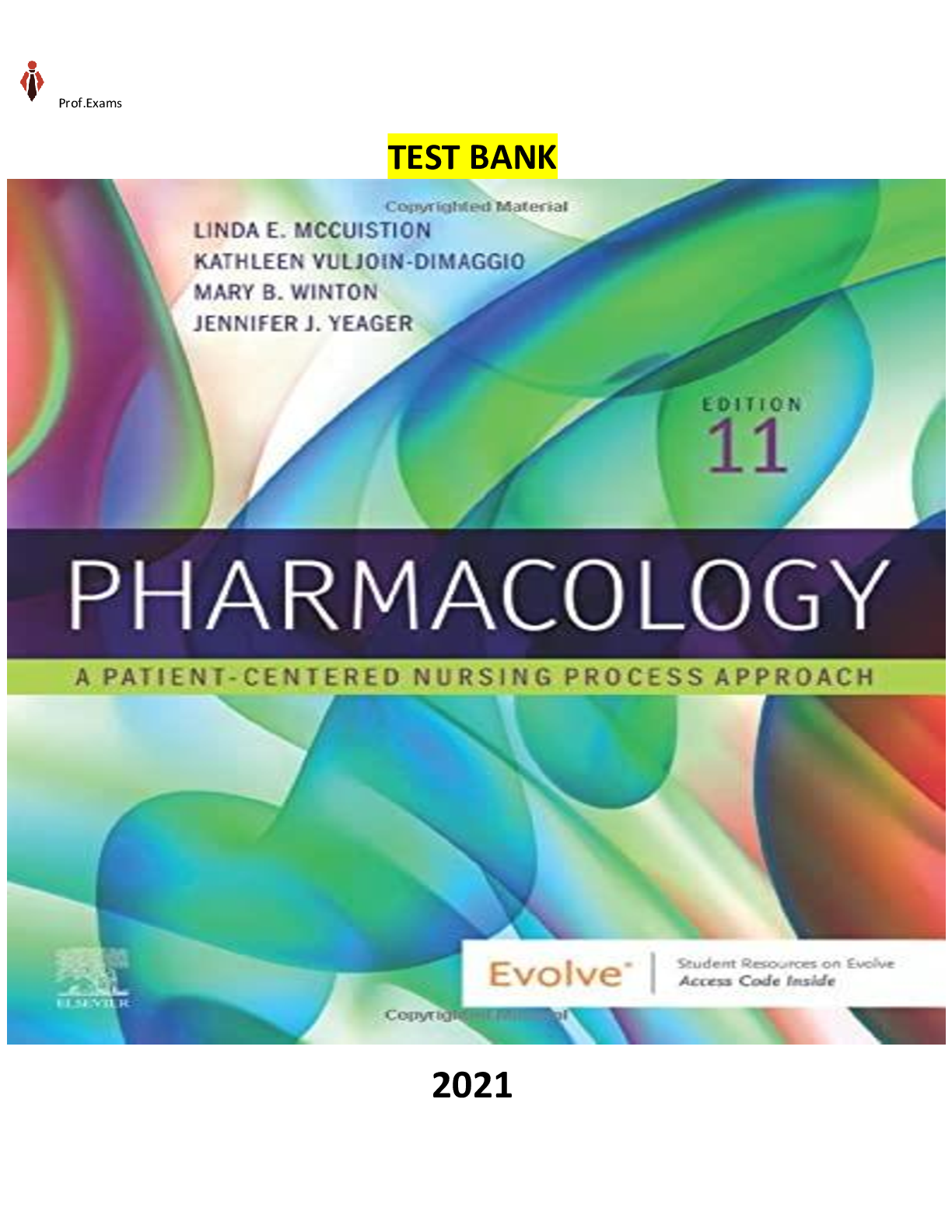
Reviews( 0 )
Document information
Connected school, study & course
About the document
Uploaded On
Apr 25, 2023
Number of pages
326
Written in
Additional information
This document has been written for:
Uploaded
Apr 25, 2023
Downloads
0
Views
52

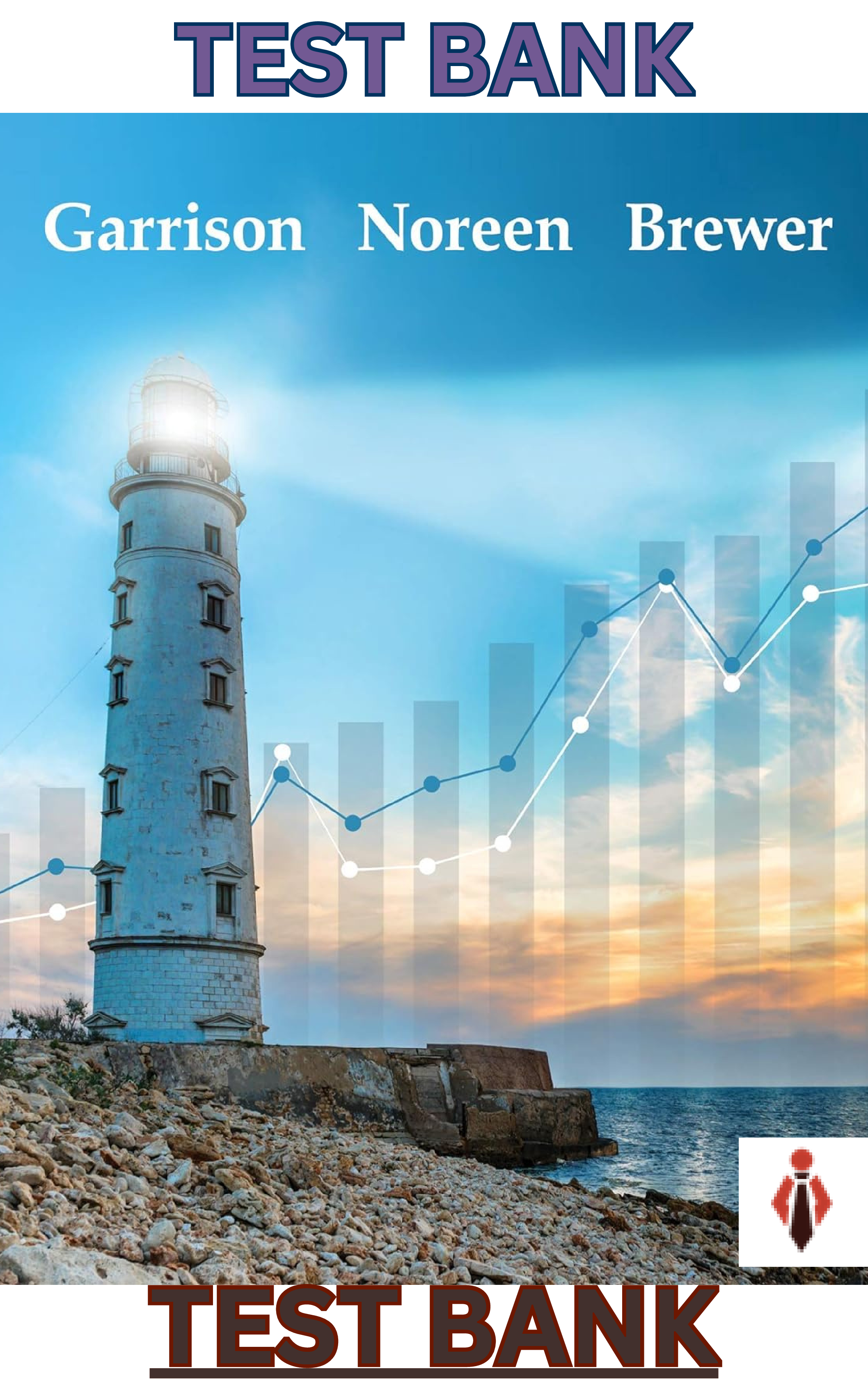

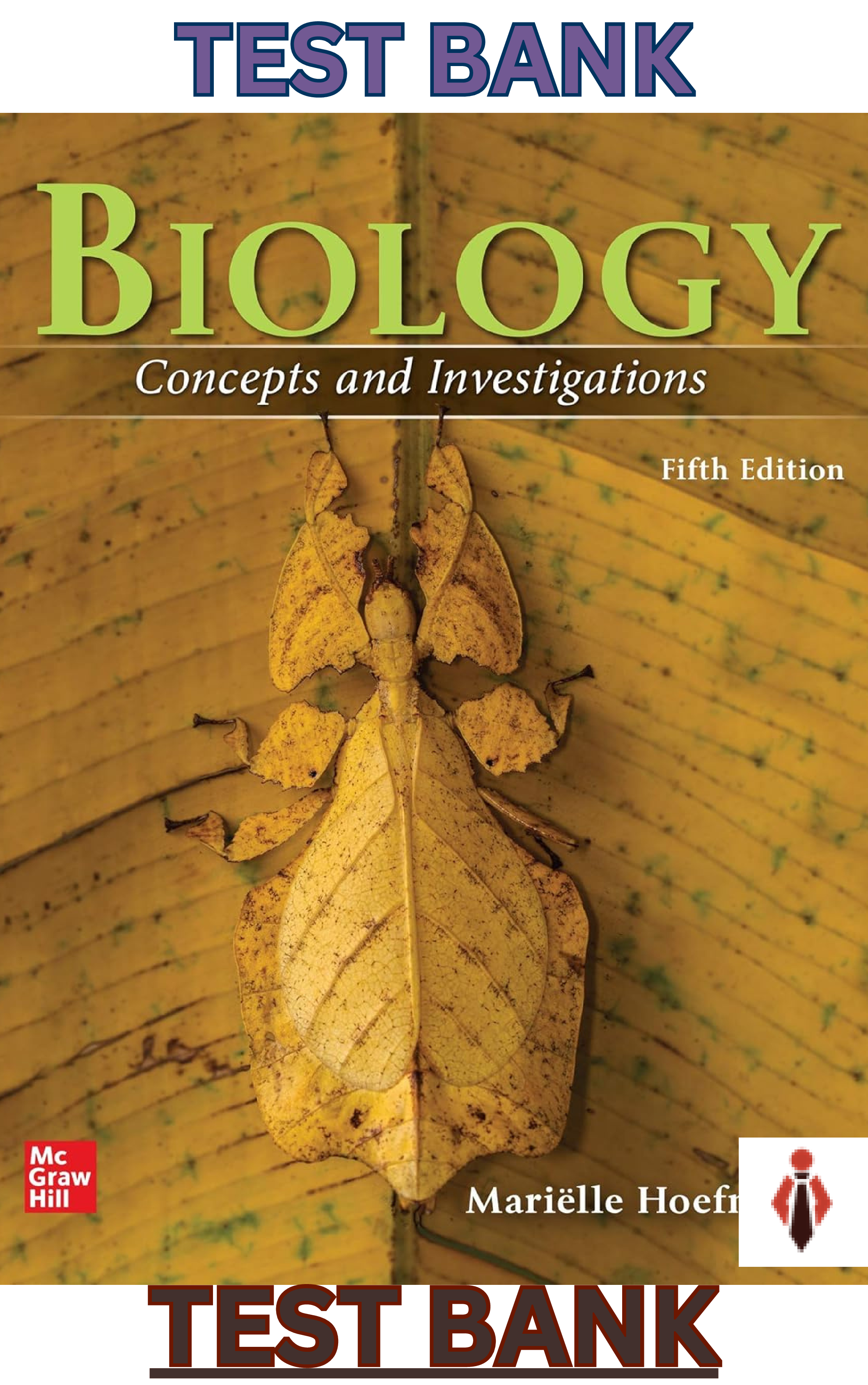
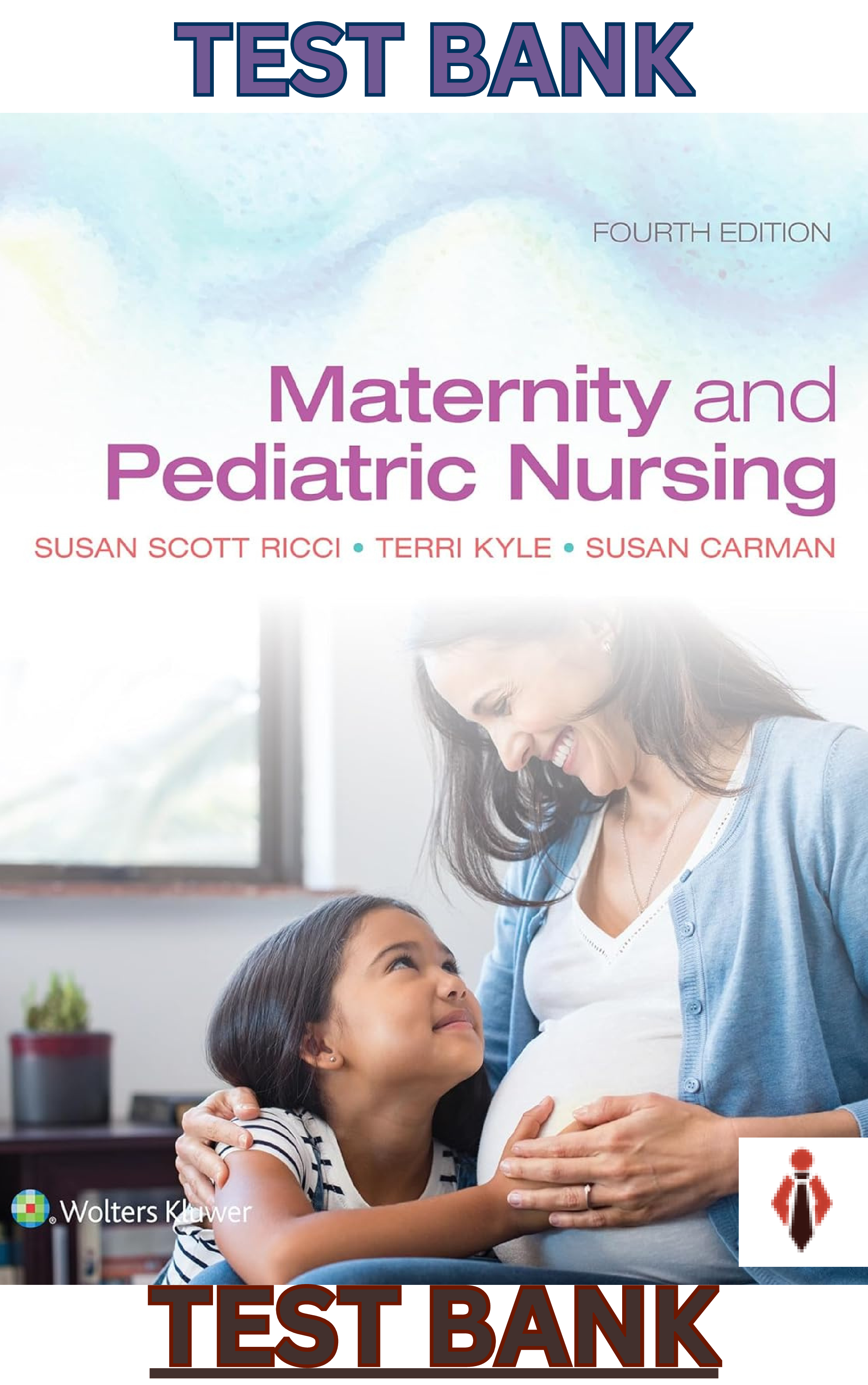
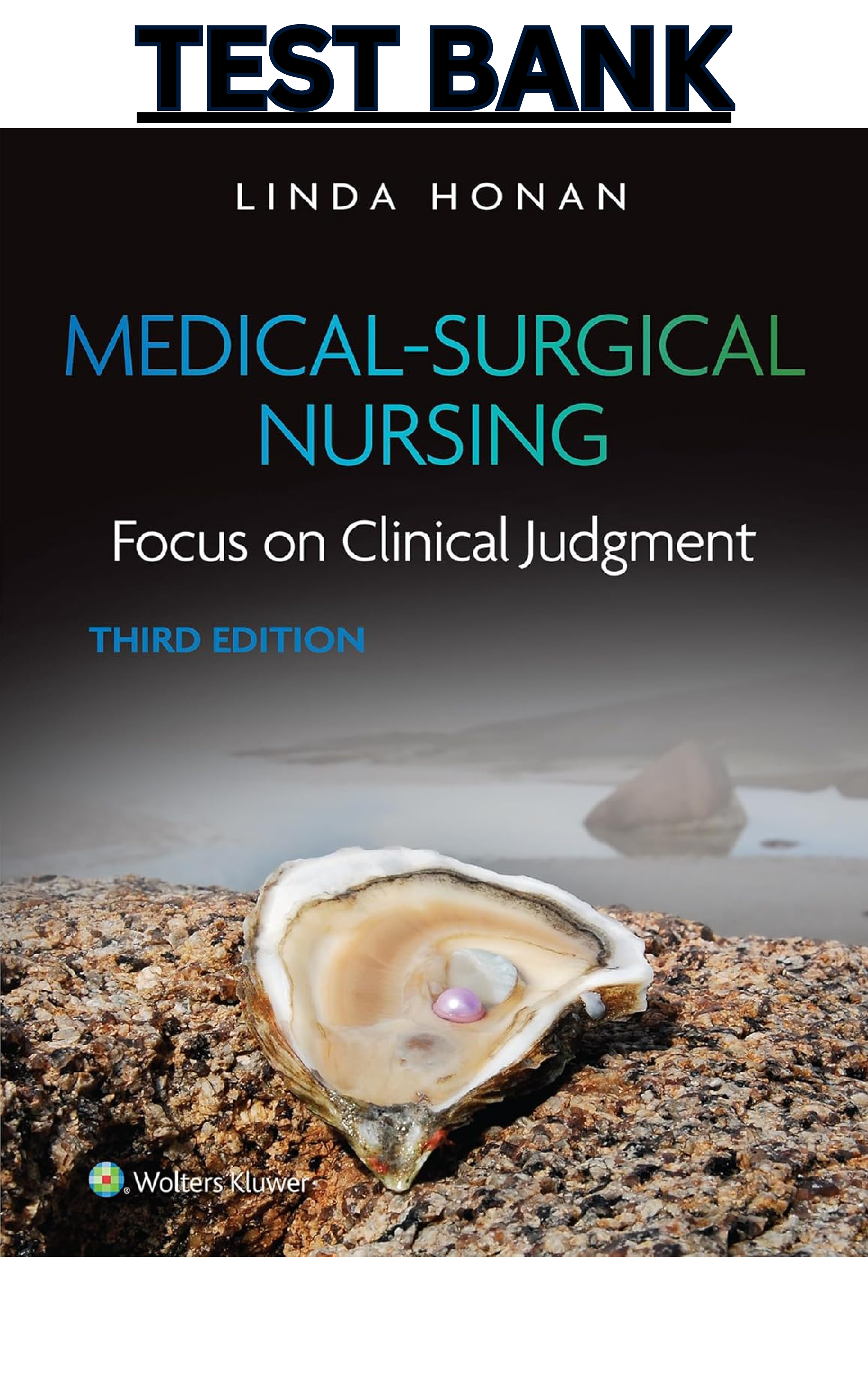
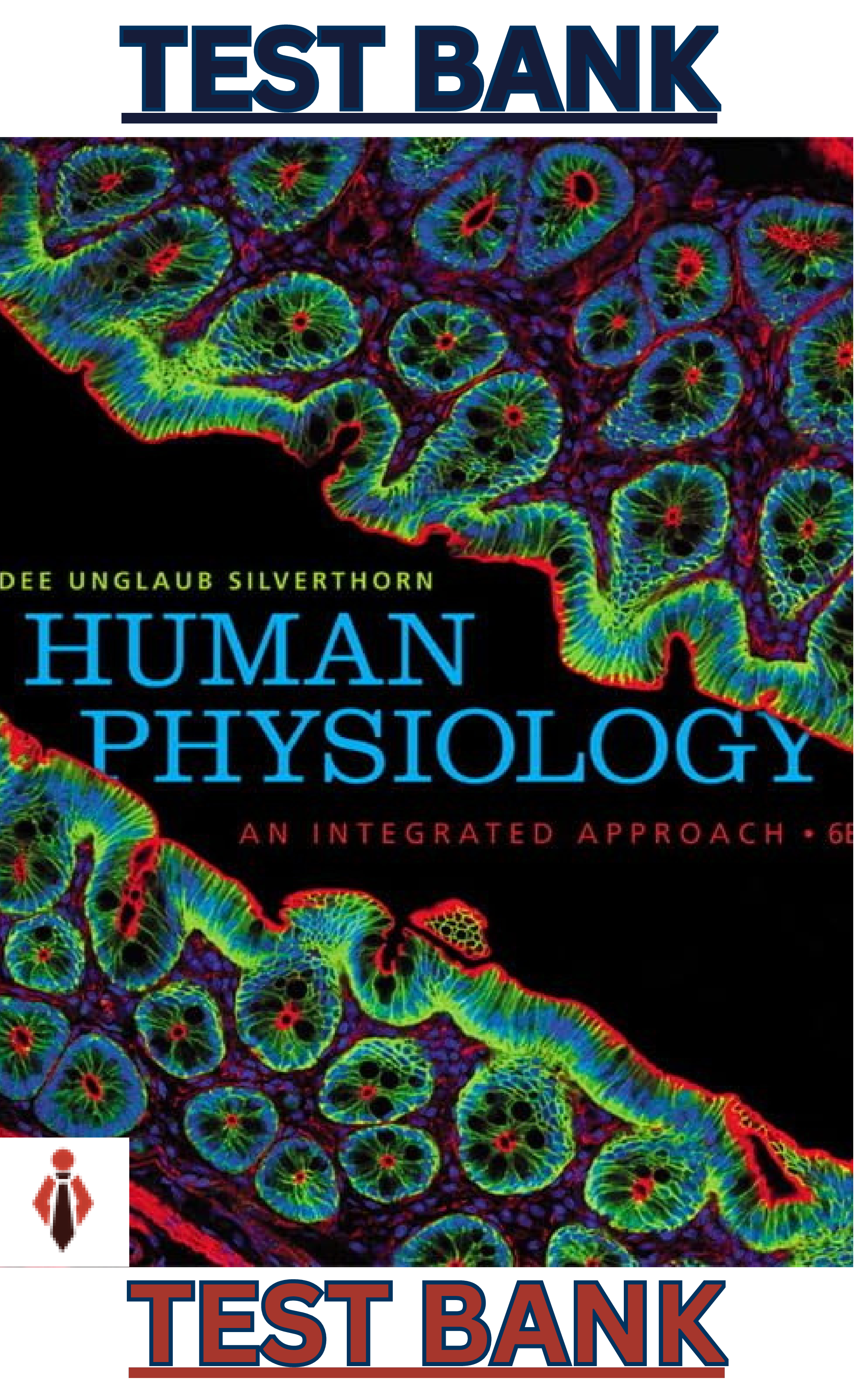

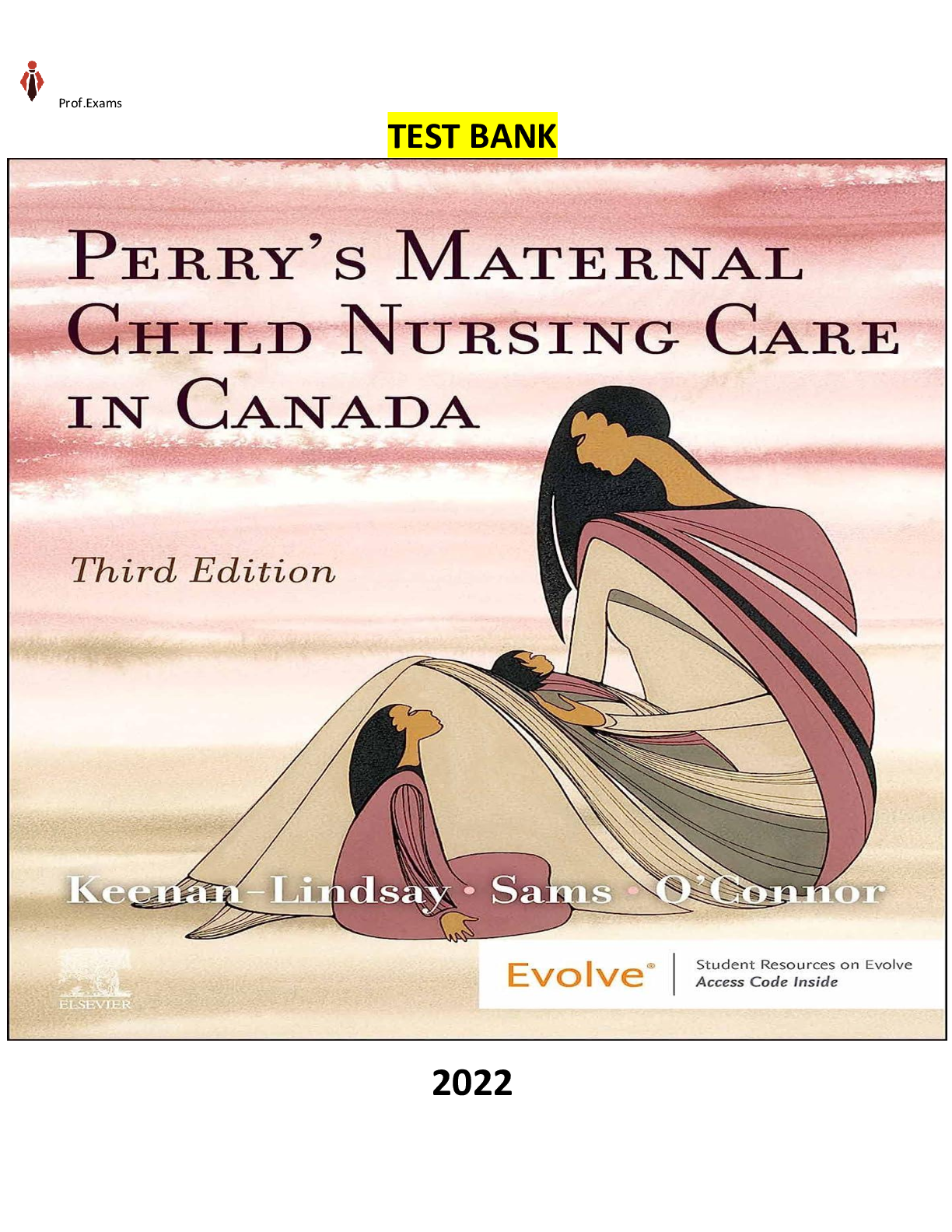
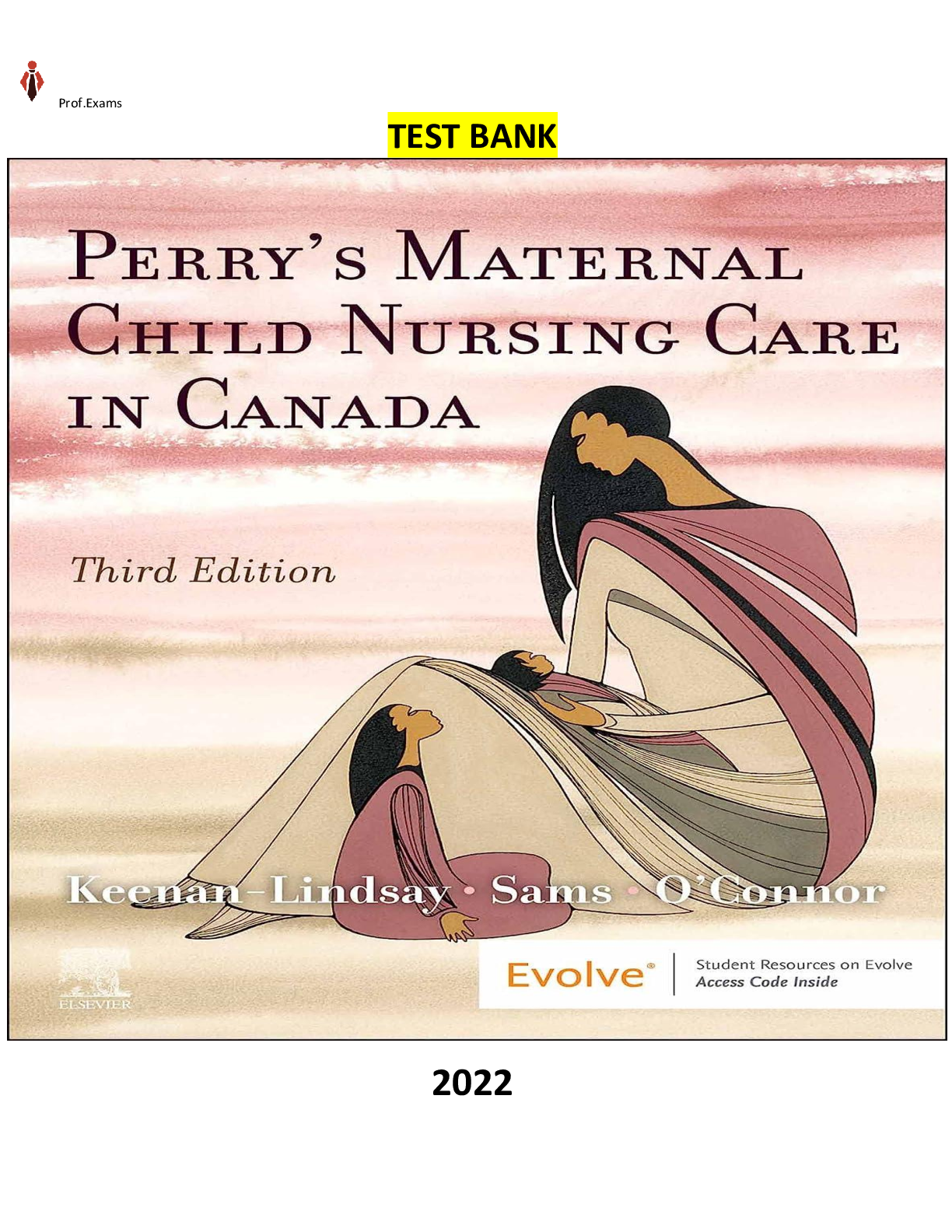
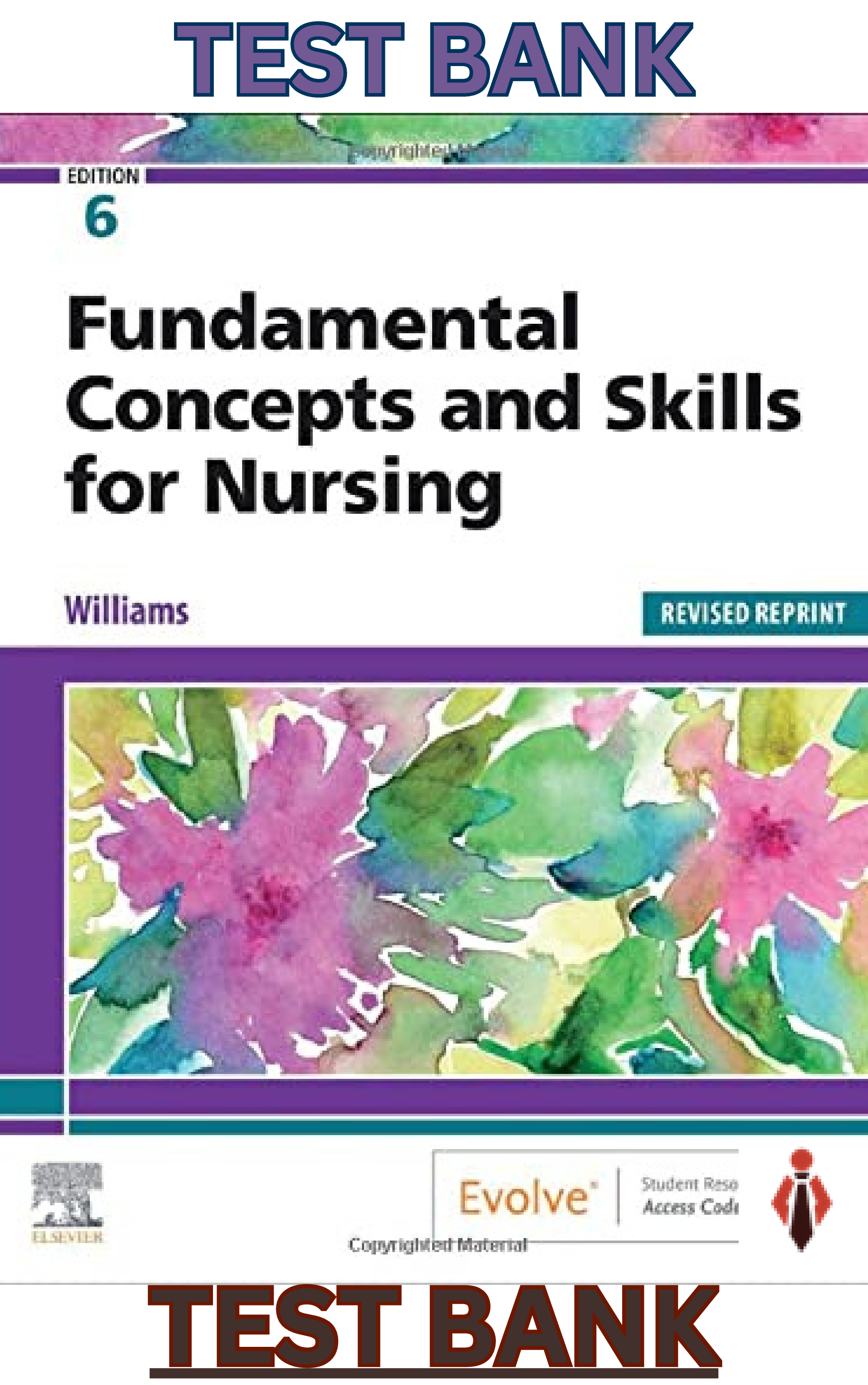
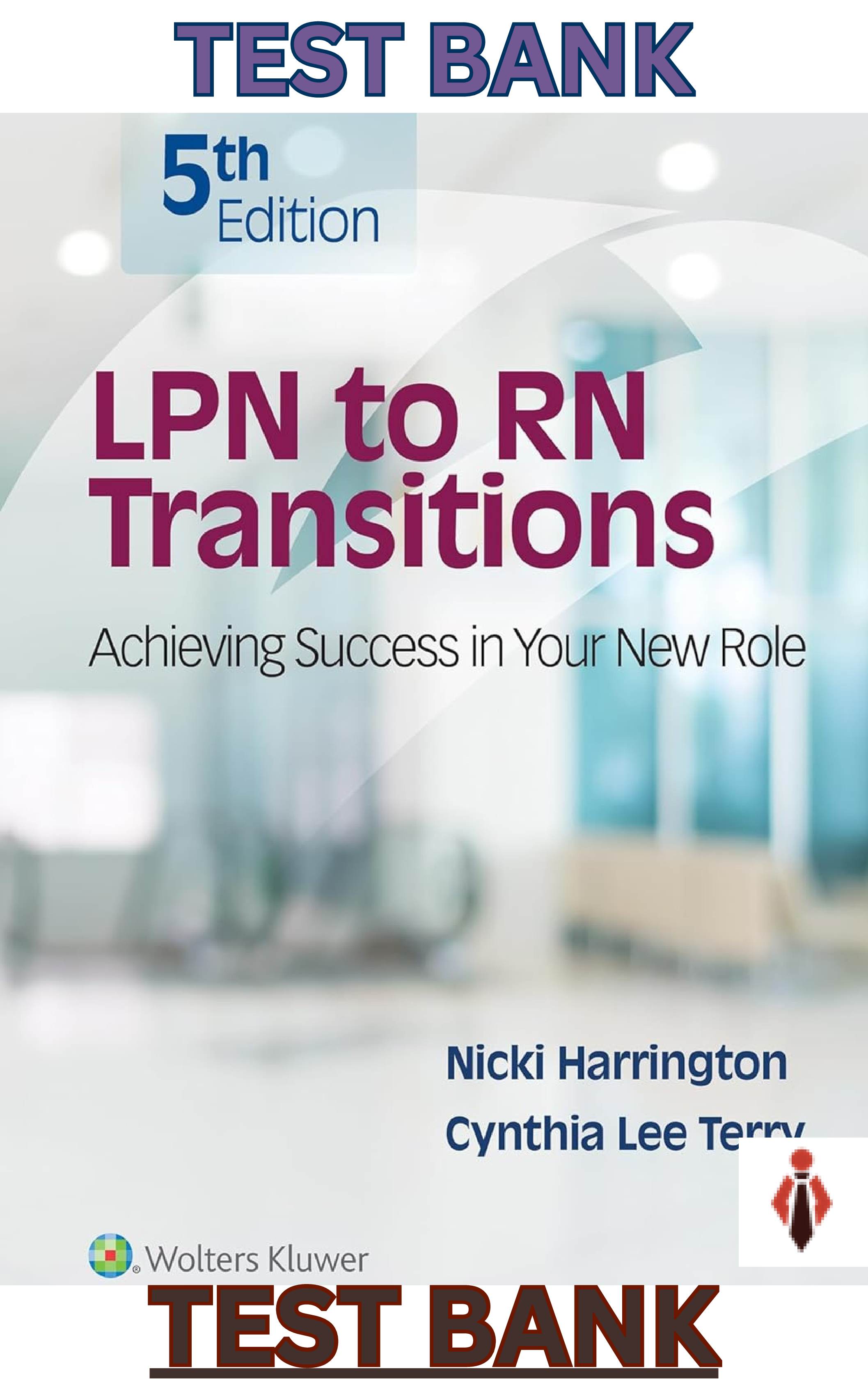
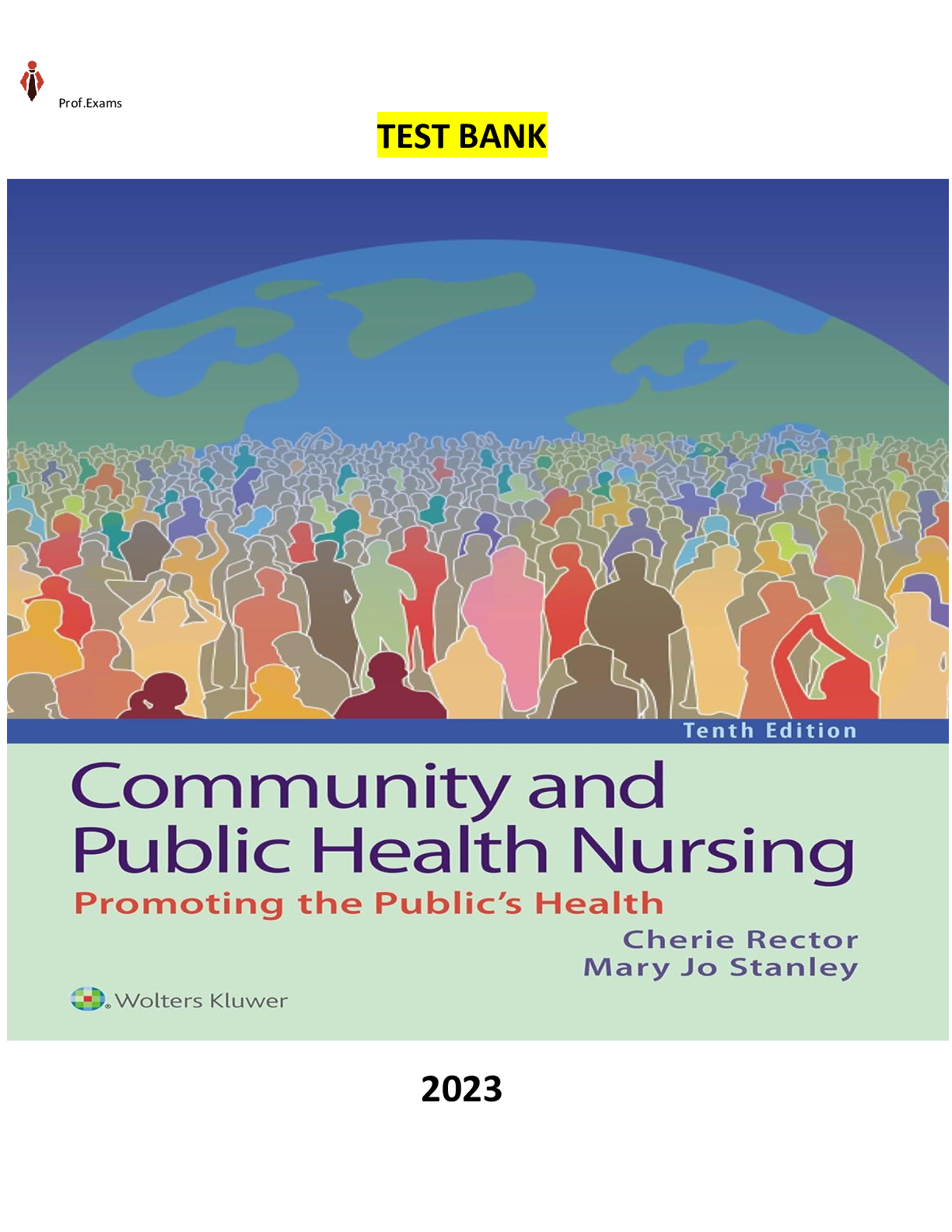
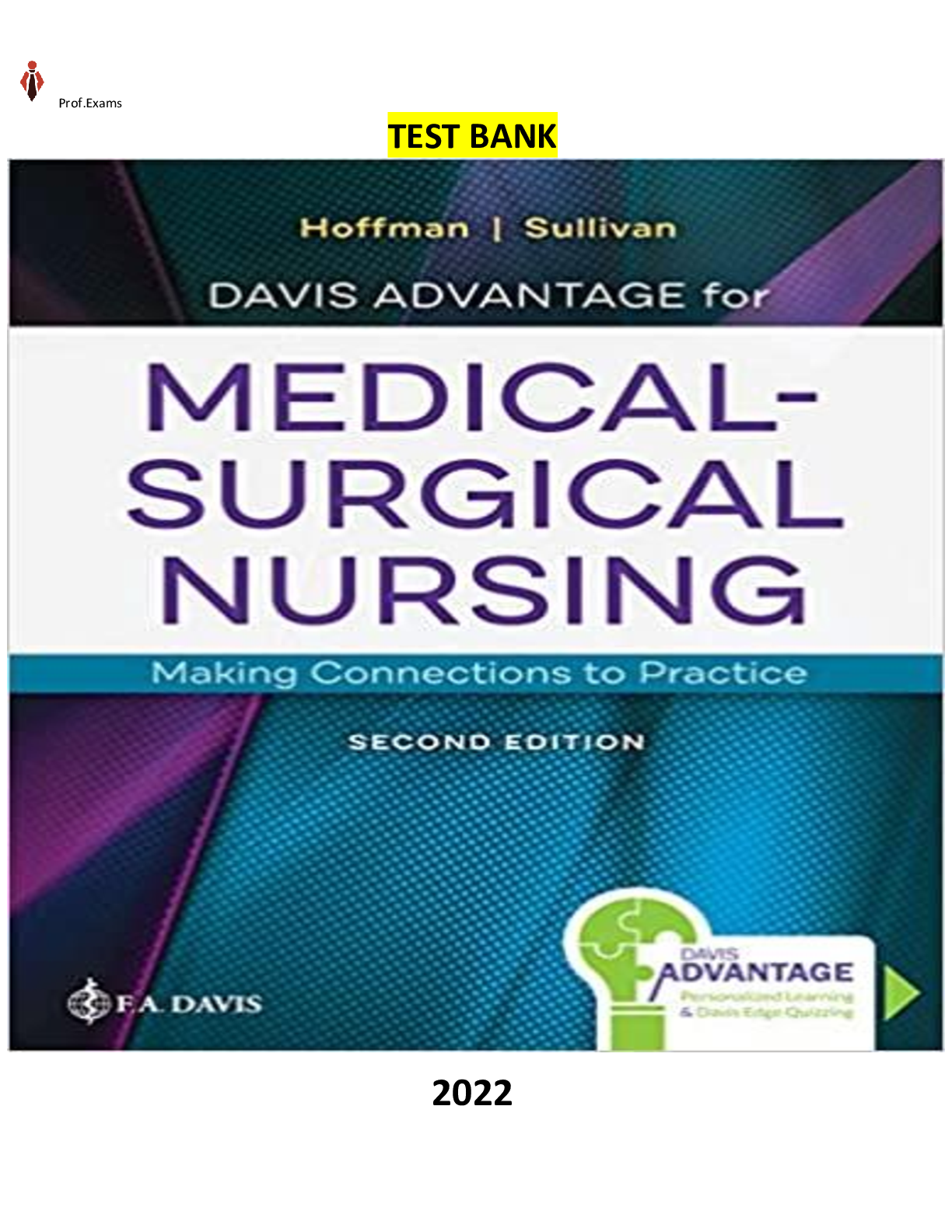
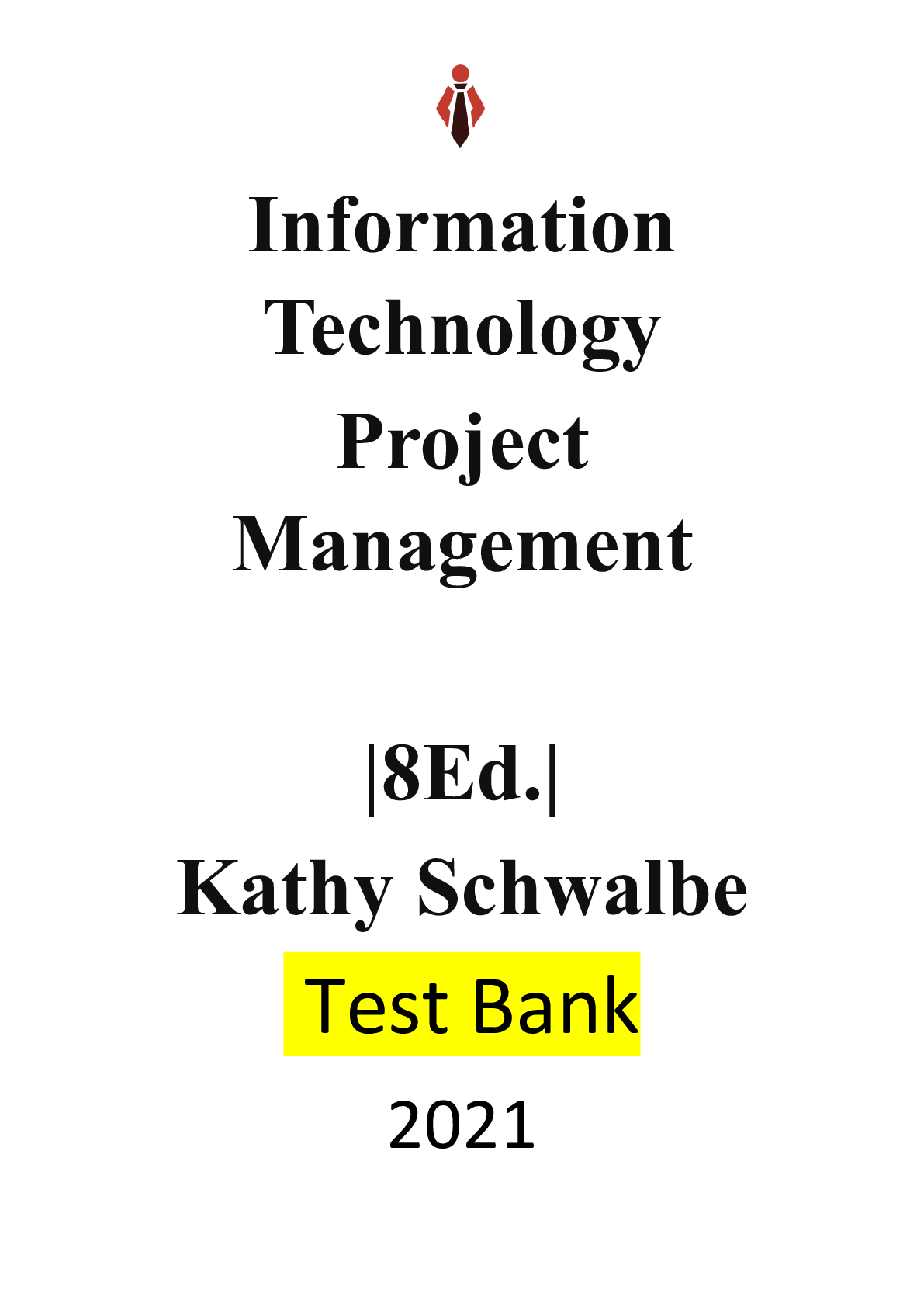
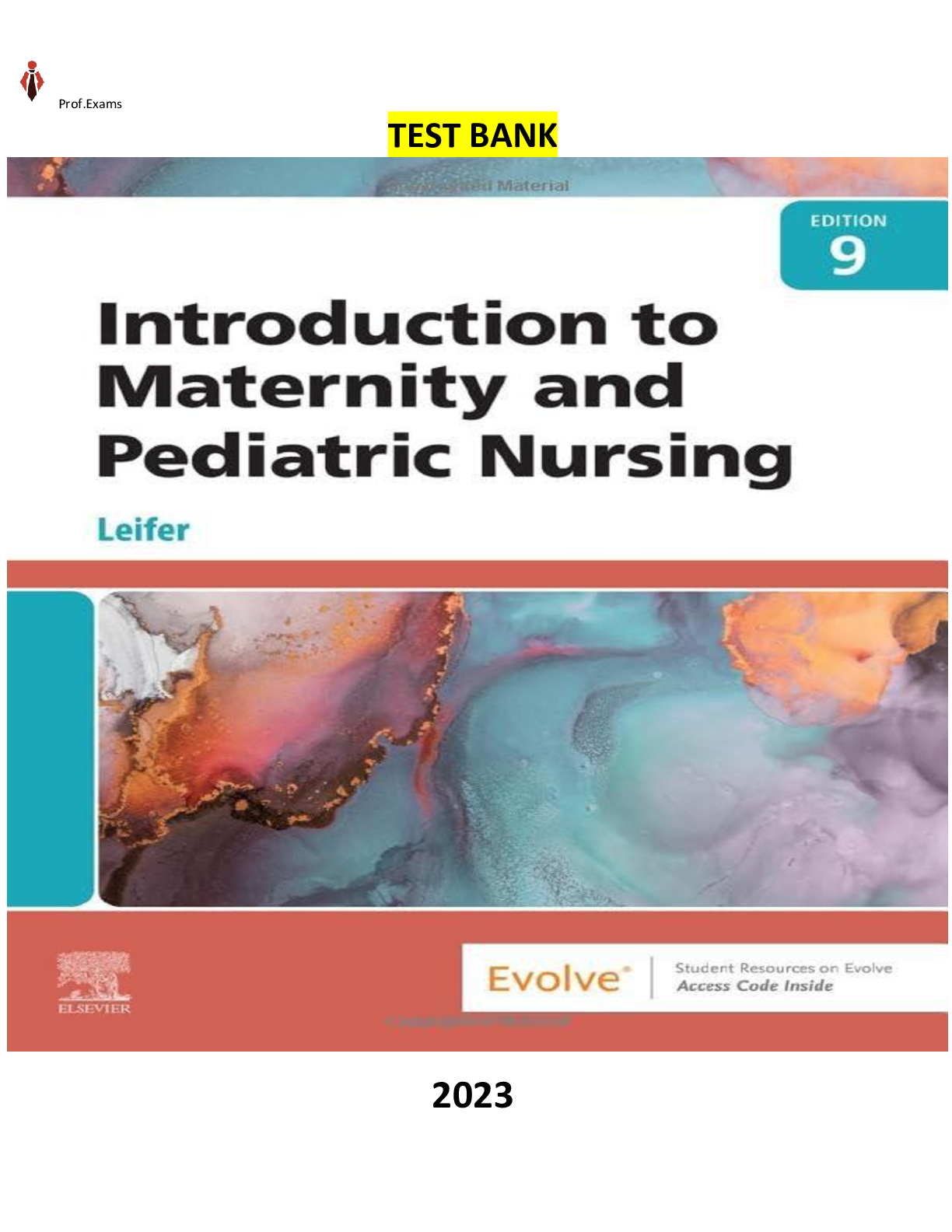
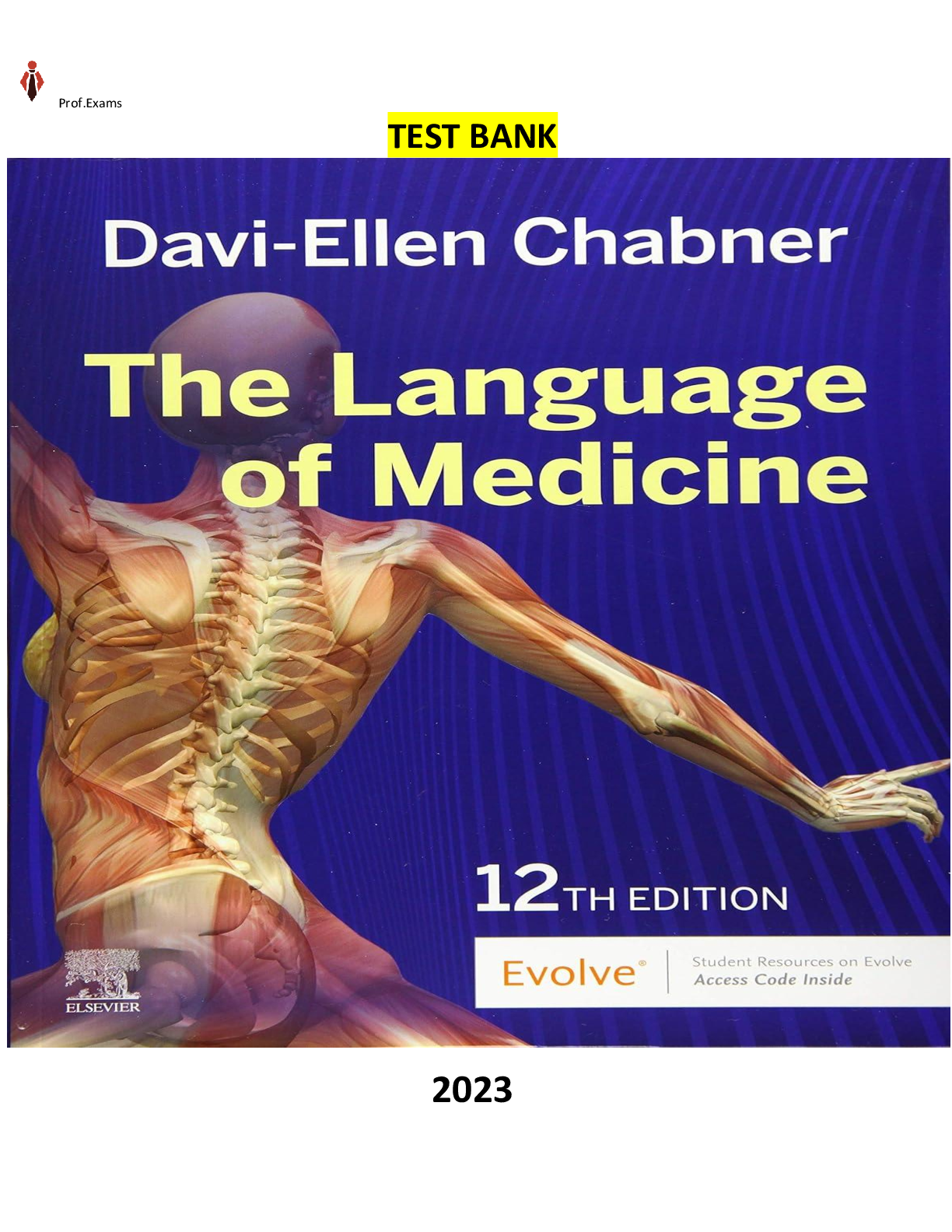
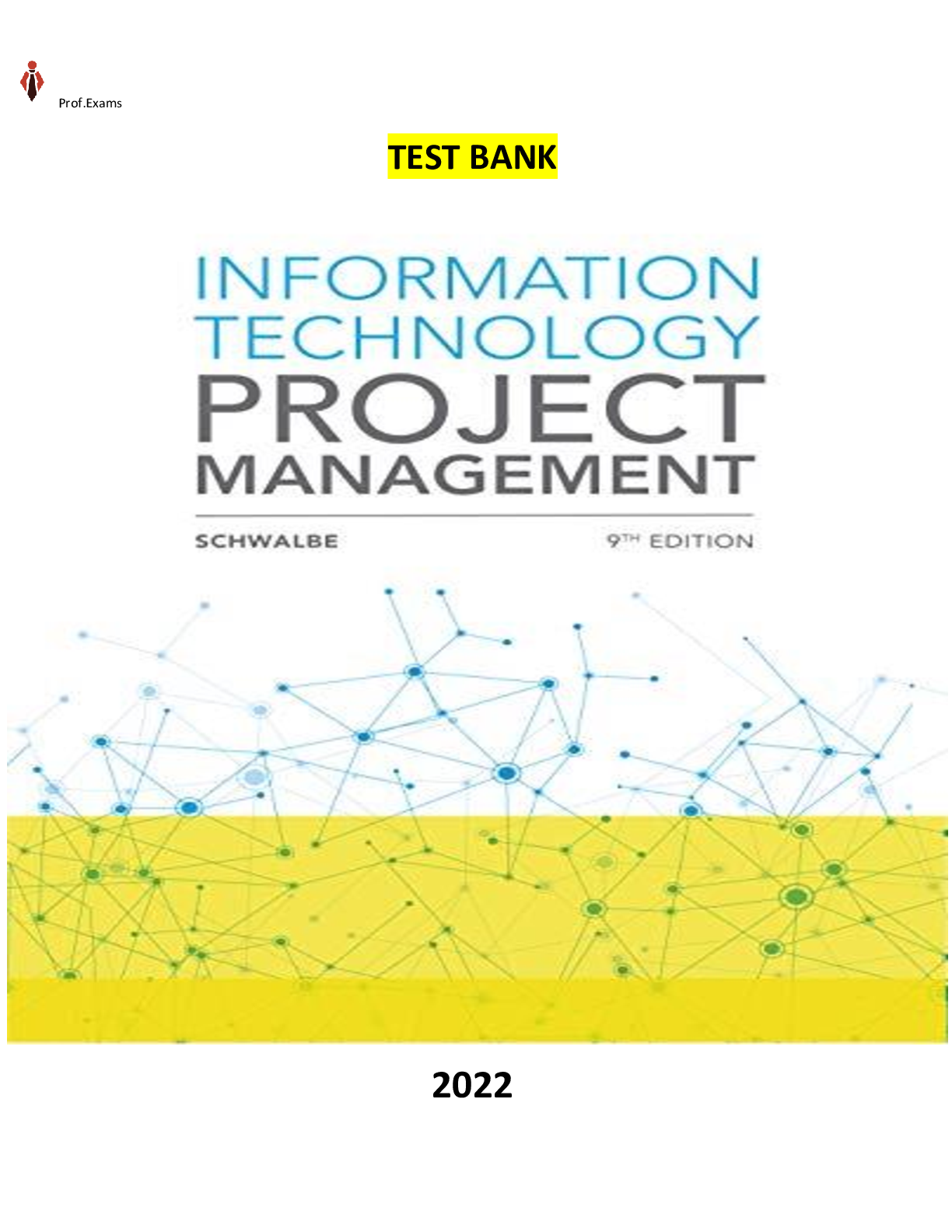
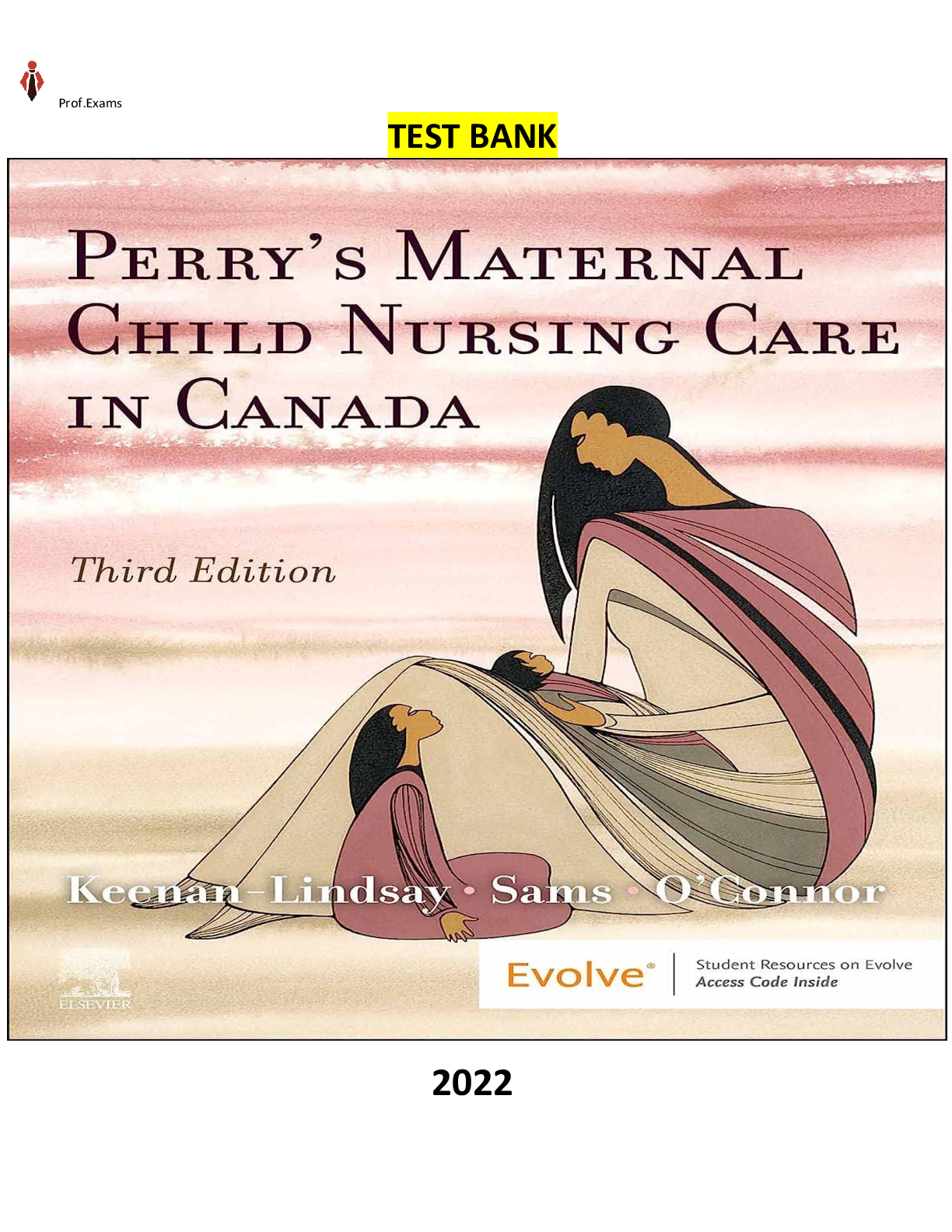
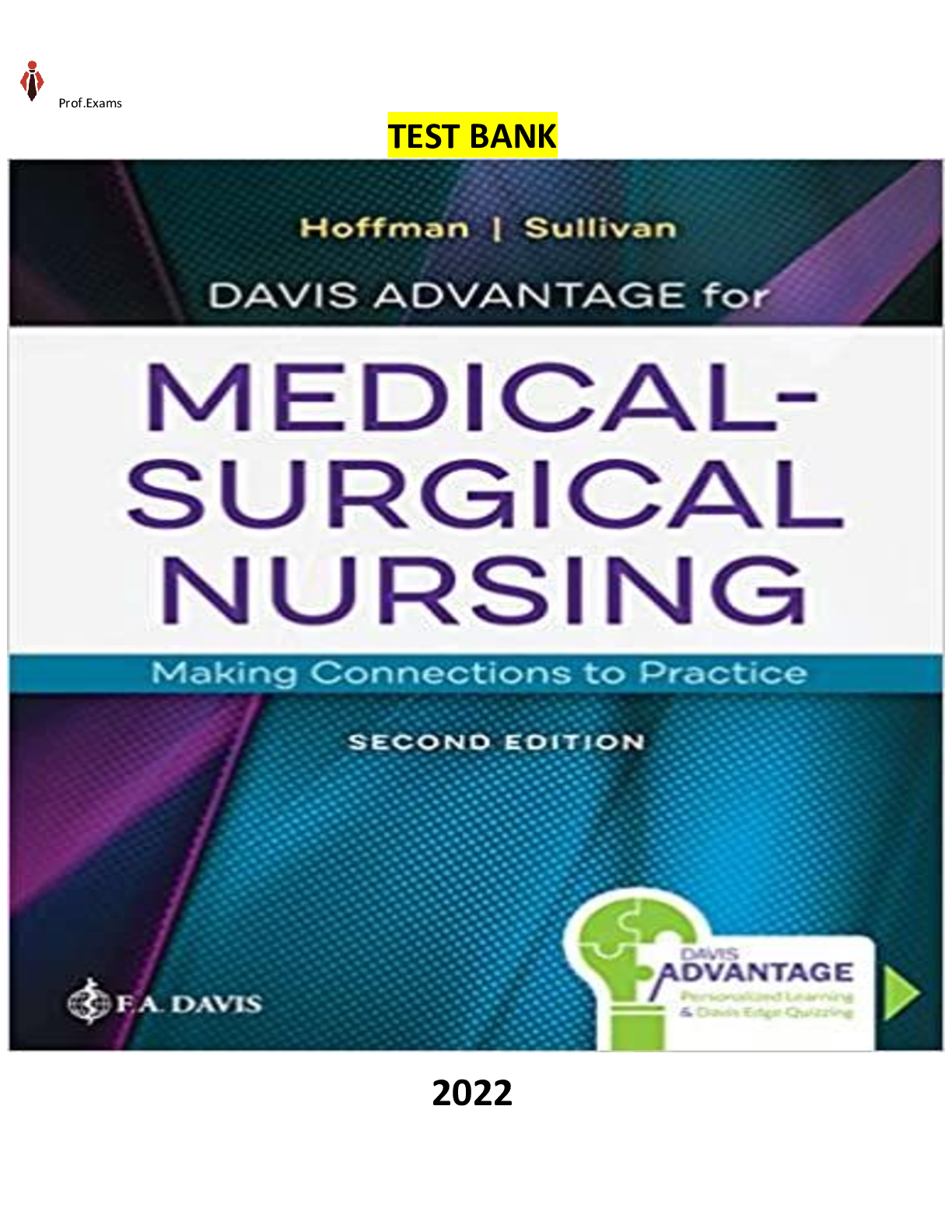
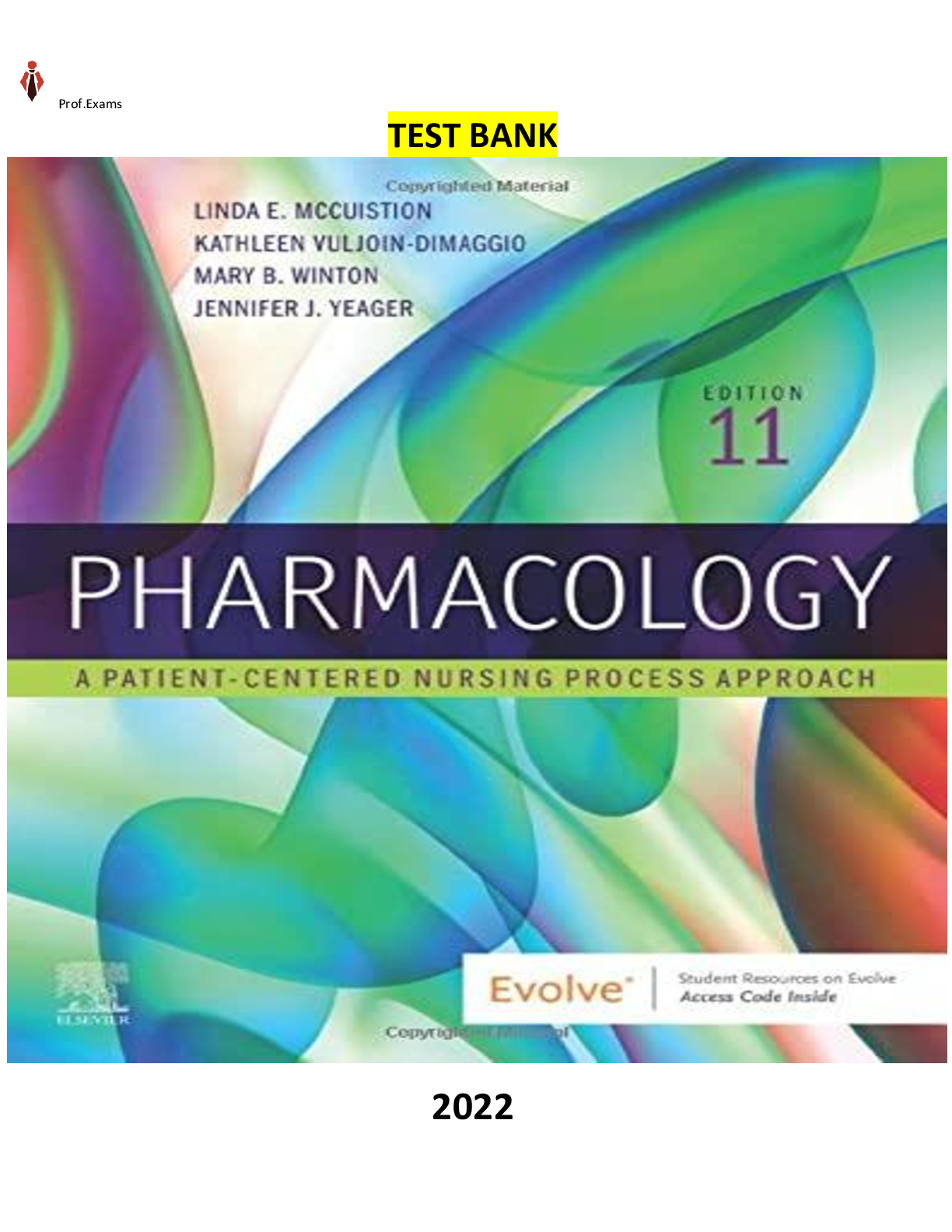
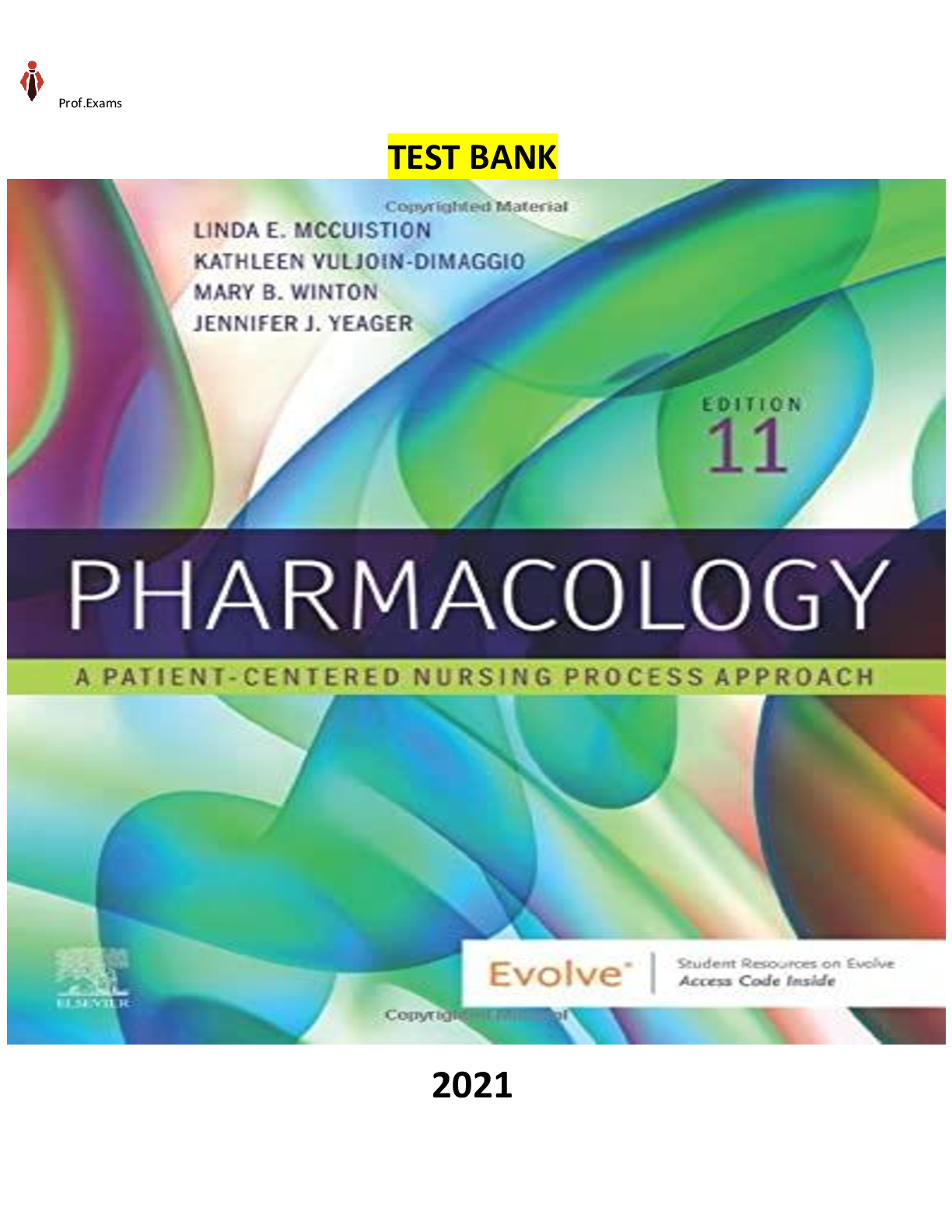
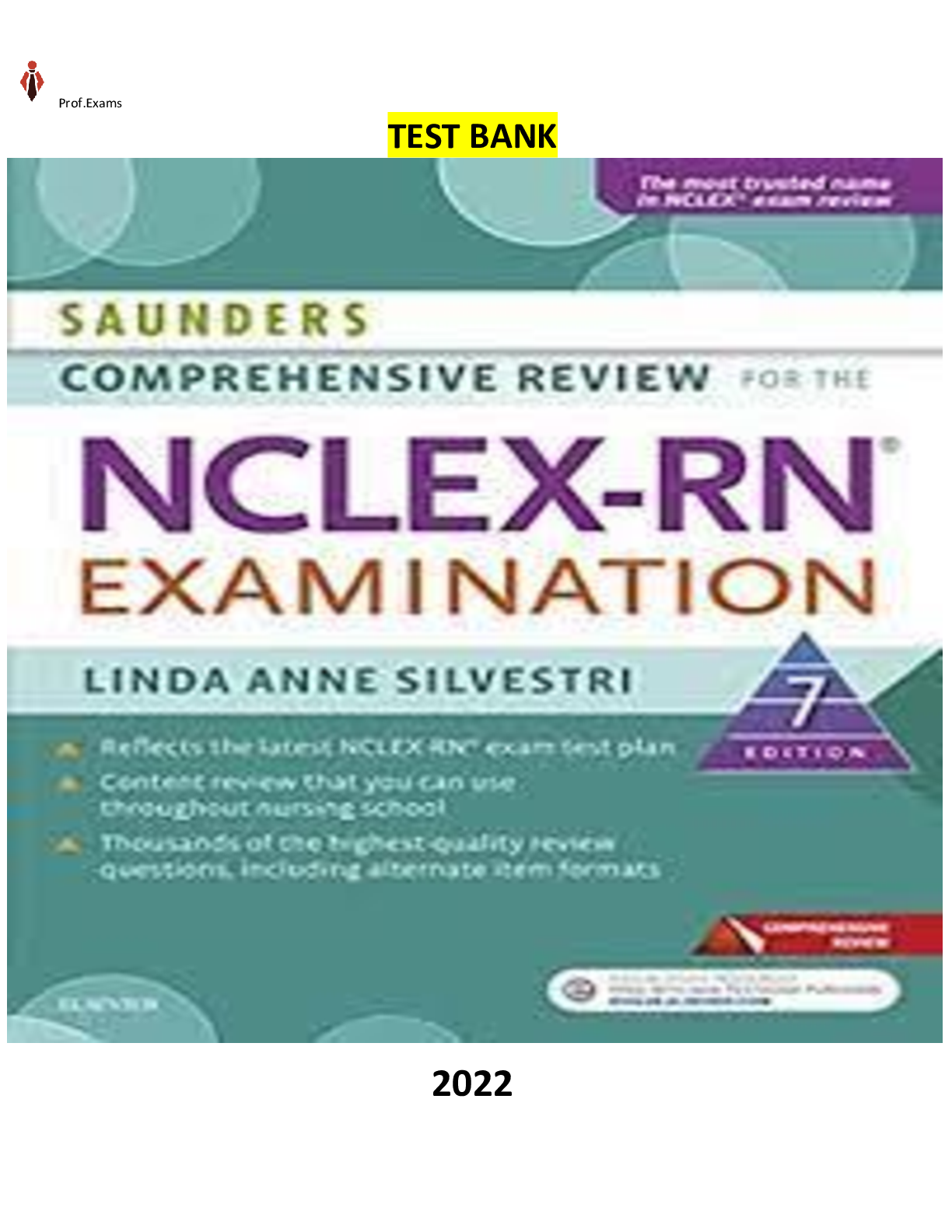
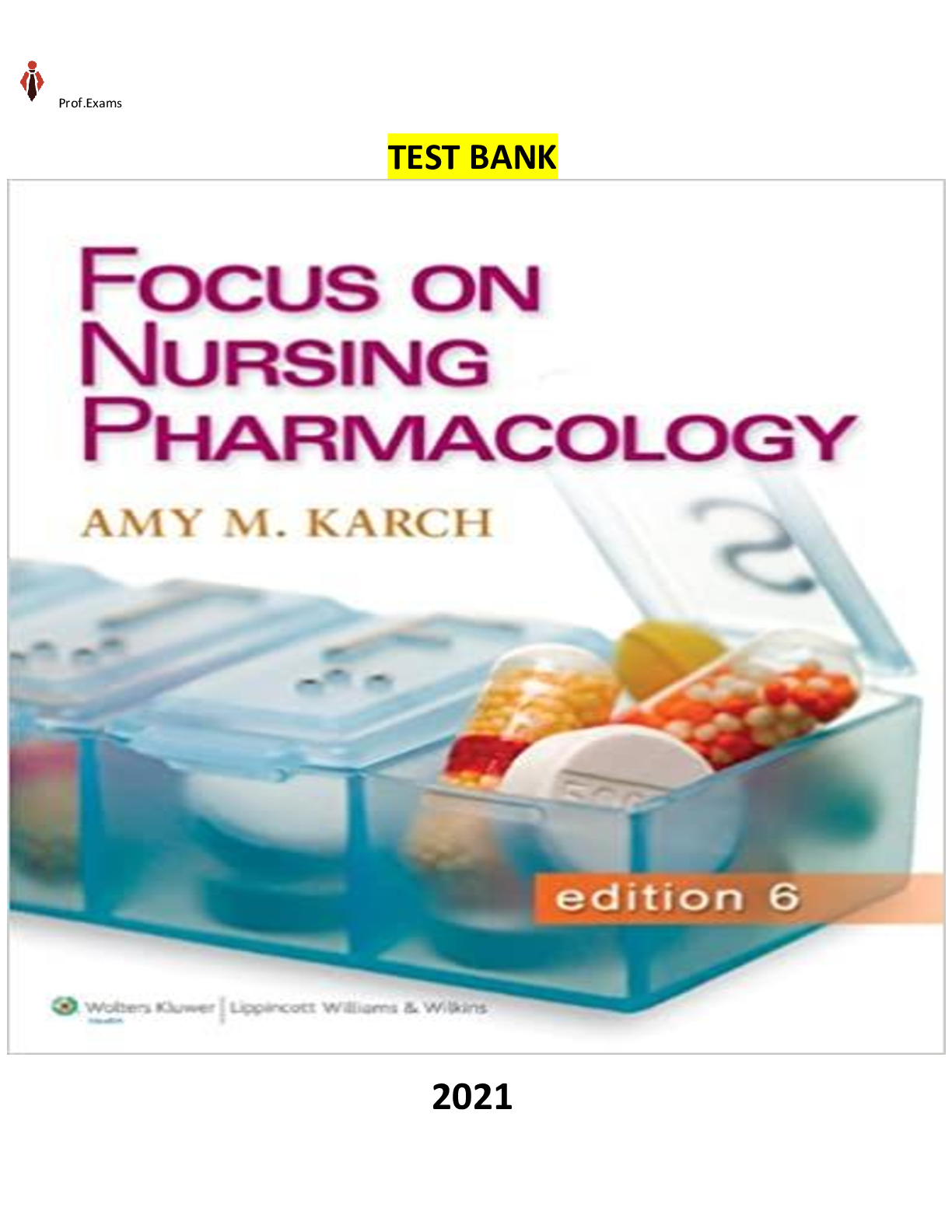
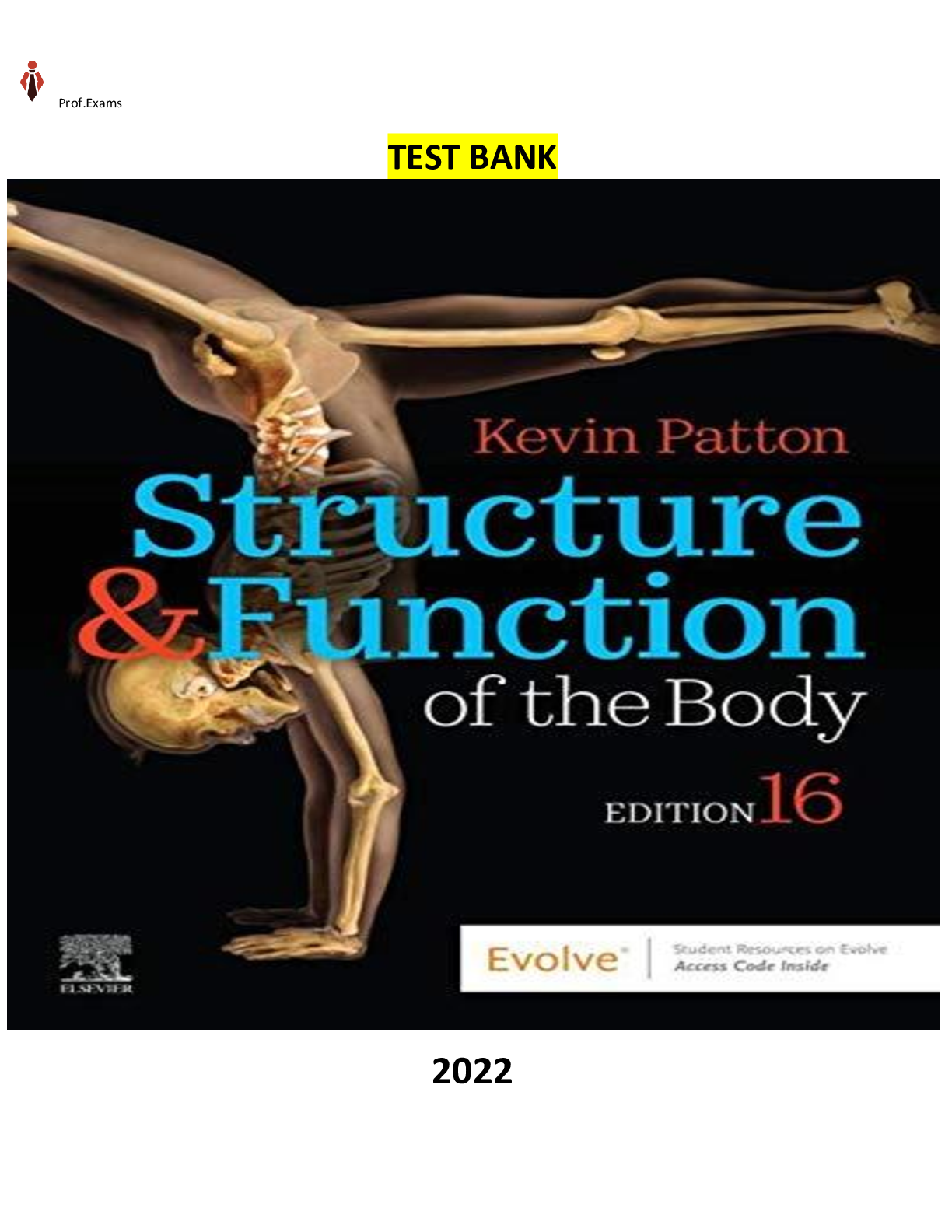
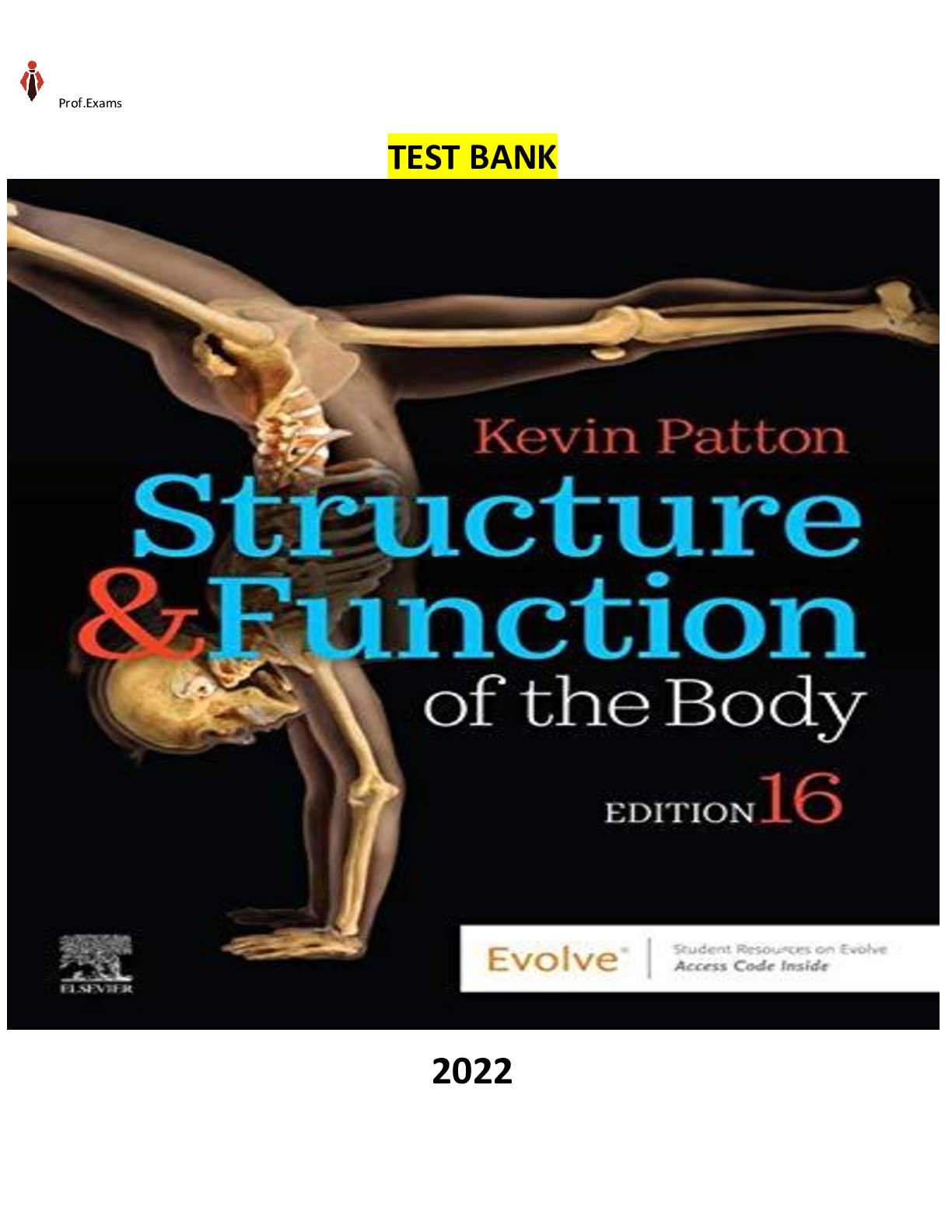
.png)
